- How it works


Useful Links
How much will your dissertation cost?
Have an expert academic write your dissertation paper!
Dissertation Services

Get unlimited topic ideas and a dissertation plan for just £45.00
Order topics and plan

Get 1 free topic in your area of study with aim and justification
Yes I want the free topic

Civil Engineering Dissertation Topics
Published by Carmen Troy at January 10th, 2023 , Revised On May 17, 2024
The importance of civil engineering works in the modern world cannot be understated, thanks to the growing public and commercial infrastructure requirement. The main focus of civil engineering is to develop a sustainable society where businesses can flourish.
Civil engineers in today’s world are keen to develop sustainable buildings, and therefore civil engineering students frequently research sustainable construction topics .
To help you get started with brainstorming for civil engineering topic ideas, we have developed a list of the latest topics that can be used for writing your civil engineering dissertation project.
These topics have been developed by PhD-qualified writers on our team , so you can trust to use them topics for drafting your dissertation.
You may also want to start your dissertation by requesting a brief research proposal from our writers on any of these topics, which includes an introduction to the problem, research question , aim and objectives, literature review along with the proposed methodology of research to be conducted. Let us know if you need a he environment, cause ny help in getting started.
Check our example dissertation to get an idea of how to structure your dissertation .
You can review step by step guide on how to write your dissertation here.
Latest Civil Engineering Research Topics
Topic 1: building demolition- analyse the efficacy of destroying and ruining big city structures and their impact on the traffic..
Research Aim: Many big cities around the world have demolished a vast number of buildings that were functional with new structures. It not only has an economic impact but also results in the loss of urban culture, harms the environment, causes pollution, and worsens the traffic situation. This study will evaluate the merits of building demotion and will provide economic, technical, and environmental input.
Topic 2: Rural housing at low cost- Improving Water Diversion, Electricity Grids, and other Infrastructure to reduce the expenses.
Research Aim: Water, sanitation, wastewater systems, electricity, and rural infrastructure all impact human development outcomes. This study will examine rural housing at a low cost focusing on the improvement of water diversion, electricity grids and infrastructure services. It will also look into the policies made to avoid certain problems and help us understand how these things have influenced life in rural regions.
Topic 3: Examining the use of Activated Flash as a Binder in pavement adjustments to allow acceptable tension reinforcing stresses in order to Control Cracking in concrete.
Research Aim: This study will examine the use of activated flash as a binder in pavement adjustments to allow acceptable tension-reinforcing stresses to control cracking. Cracks usually emerge as a result of mechanical loads, adverse response, and environmental impact, and frequent cracking negatively impacts the performance of concrete. This study will focus on the appropriate measures that should be taken, as well as designs, materials, and construction practices to extend the life without any loss.
Topic 4: Strengthening an existing structure to allow it to withstand climate change - An analysis.
Research Aim: Buildings are dependent on environmental conditions. This study will analyse the strengthening of the existing structure to protect it from the effects of climate change. The focus is on the material used for the protection, sustainability, and strengthening of the building, as well as the adaptation of new construction standards. A milder temperature will lower the lifespan of building materials and impact the indoor climate of the building. More stormResearch Aim: The main goal of this study is to conduct a unique investigatios, snow or subsidence damage, water encroachment, and a bad indoor environment all contribute to a reduced building lifespan, raising the risk of collapse, worsening health, and significant loss of value in return.
Topic 5: An investigation of the use of Graphene-Fabricated nanoparticles for Water Purification- Comparison between Cost-Effectiveness and Benefits.
Research Aim: The main goal of this study is to conduct a unique investigation of the use of graphene-manufactured nanomaterials for water purification. The project intends to compare the benefits and cost-effectiveness of graphene processes. Furthermore, this study also intends to evaluate graphene nanomaterials’ impact on water treatment and analyse many future and emerging perspectives.
Topic 6: The Impact of Integrating IoT in Urban Development. An Exploration of Smart Cities Infrastructure.
Research Aim: The aim of this research is to investigate the effects of incorporating Internet of Things (IoT) technology in urban development, specifically focusing on its implications for smart city infrastructure. The study seeks to understand how IoT integration influences various aspects of urban living and city management.
Topic 7: Investigating the Use of Bamboo as a Construction Material.
Research Aim: The research aims to investigate the viability of bamboo as a construction material. Through empirical analysis and comparative studies, it seeks to evaluate the structural, environmental, and economic benefits of using bamboo in construction projects. The study further explores the bamboo’s mechanical properties and durability aspects by considering its availability, cost-effectiveness, and ecological impact. Furthermore, it aims to identify challenges and opportunities associated with bamboo use in construction.
Topic 8: An Analysis of the Lightning Protection Systems for Building Structures
Research Aim: The research analyses the design principles and practical implementation of lightning protection systems for building structures. The study focuses on ways to improve safety, avoid any risks and optimise the overall performance.
Topic 9: Exploring the Importance of Personal Protective Equipment (PPE) in Construction
Research Aim: This study explores how Personal Protective Equipment (PPE) can help improve worker safety and minimise occupational hazards. The research further discusses the best practices for the selection and enforcement of PPE.
COVID-19 Civil Engineering Research Topics
Topic 1: civil engineering after coronavirus: identify the consequences of covid-19 on civil engineering in the uk or any country of your choice..
Research Aim: This research will focus on identifying the impacts of coronavirus on civil engineering in the selected country.
Topic 2: Research to study the damage caused to the construction projects due to the lack of workers on site.
Research Aim: This study will focus on identifying the damage caused to construction projects as the workers are staying away from the sites. What measures are taken to complete these projects and recover the loss?
Topic 3: Contractors and Builders after COVID-19: business industry, tender opportunities, and planning to continue business
Research Aim: This research aims to identify the conditions faced by contractors and builders. What is their plan to deal with the COVID-19 crisis? How did it affect the business industry and tender opportunities?
Topic 4: Cite Operating Procedures: research the various safety measures for workers, contractors, and engineers working on construction sites.
Research Aim: This research is conducted to know about various safety measures taken by the government and private organisations for workers, contractors, and engineers working on construction sites.
Topic 5: Investigate how civil engineers are working from home: Identify whether remote working can be a long-lasting solution to recover the loss caused by COVID-19.
Research Aim: Remote working has emerged as a ray of hope for mechanical engineers amid this pandemic. This research will focus on the advantages and disadvantages of remote working and also answer the question of whether it is a long-lasting solution or not.
Topic 6: Research to study the economic and labour crisis as a result of Coronavirus
Research Aim: This research will focus on the financial loss and labour crisis caused by the outbreak of the coronavirus pandemic.
Topic 7: Research to study the disruption of the supply chain, shortage of contractors, workers, and material, cancellation of contracts due to COVID-19
Research Aim: This research will focus on identifying the disruption of the supply chain, shortage of contractors, workers, and materials, and cancellations of contracts as a result of COVID -19.
Topic 8: Research to throw the light on the future of the construction Industry after the Coronavirus pandemic.
Research Aim: This research will focus on predicting how the construction industry will transform after the COVID-19 pandemic. What challenges may it face, and what could be the possible ways to meet those challenges?
Topics in Civil Engineering and Construction
Topic 1: computational mechanics and modelling.
Research Aim: This research aims to study the role of computational mechanics and to model In civil engineering
Topic 2: Development in Rock Mechanics
Research Aim: This research aims to highlight the recent developments in Rock Mechanics
Topic 3: Assessment of the bridges with innovative ideas
Research Aim: This research aims to address the need to assess bridges and propose innovative ideas for bridge constructions and designs.
Topic 4: Efficiently managing the water resources
Research Aim: This research aims to focus on the effective management of water resources during construction.
Topic 5: Stability of high rise buildings
Research Aim: This research aims to address the issues of the instability of high-rise buildings and the stress of ensuring their stability by highlighting the gaps in the literature review and providing a strong recommendation for researchers.
Topic 6: Elope Erosion Control in the Construction Industry
Research Aim: The research investigates the significance of elope erosion control to prevent soil erosion and facilitate drainage.
Dissertation Topics in Structural Engineering and Environmental
Topic 1: reliability of foundation performance and implications for structural design.
Research Aim: The main purpose of the research will be to use a reliability-based approach to performance by using two complementary approaches; macroscopic and action-oriented approach and microscopic and analysis-oriented approach to evaluate major risks and strategies that can be used to implement in complicated structural systems and designs.
Find 100s of dissertation topics in your other academic subjects in our free topics database.
Topic 2: Behaviour of steelwork connection at large deflection in a fire
Research Aim: This research study will explore the behaviour of steelworks at large deflection in a fire. The researcher will use a unified computing model to simulate the behaviour of steelworks and their impacts on the deflection in the fire. Several other factors will also be identified in the study, such as limiting temperature criteria, loading and unloading effects, and explosion load ratios.
Topic 3: User-friendly model of degrading groundwater pollution plume
Research Aim: Groundwater pollution plumes consist of degradable compounds and materials, which results in declining the overall natural processes and their effectiveness on marine life. There have been studies that aimed to explore the slow degradation processes of pollution plumes in groundwater. However, this is particular research will aim to explore different factors that cause groundwater pollution plumes and contribute to its slow degradation process. Finally, the study will propose a user-friendly model to degrade the plume of groundwater pollution.
Topic 4: Examination of advanced solution strategies for non-linear FE analysis
Research Aim: This research aims to explore the role of advanced solution strategies that help engineers and builders carry out non-linear FE analysis. In this study, the researcher will demonstrate the static and dynamic problems related to the non-linear effects of solid structures and systems.
Topic 5: Strength, stiffness, non-linearity, and the volumetric response of concrete under triaxial compression
Research Aim: In this study, the researcher will demonstrate the behaviour of concrete under the situation of triaxial compression. The researcher aims to understand the stiffness, volumetric and compressive behaviour of concrete which may cause deformation when pressure is applied.
More Civil Engineering Dissertation Topics
- Research to Set up Remote Sensing Applications to Assist in the Development of Sustainable Enterprise
- Research to Study and Develop Water Treatment Processes
- Research to Studying Sustainable Construction Materials and Technologies
- Research to Study Sustainable Engineering: New Objectives for Construction Projects
- Research Regarding Micromechanics of Granular Materials.
- Research to Transform a Manufacturing Plant into a Sustainable Enterprise.
- Research to Study the Relationship Between Sustainability and Learning Organisation.
- Research to Study the Impact of Sustainability Concepts on Organisational Growth and Development.
- Research to Ensure Sustainable Heat Conservation Generated from Compressors within a Manufacturing Site.
- Research to Study and Develop Waste Reduction Strategies to Achieve Sustainable Concepts.
- Investigating the Impact of Ultra-high Performance Concrete (UHPC) in Civil Engineering.
- Studying the Impact of Construction Technology on Safety.
- Research to Study Properties of Concrete to Achieve Sustainability.
- Research to Study the Relationship between Lean Manufacturing and Sustainable Manufacturing.
- Research to Study Sustainability and its Impact on Learning Organisation.
- Development of Sustainable Homes with the Help of Renewable Energy Sources.
- Seismic Design of Cold-Formed Steel Structures in Residential Applications
- Living Tree Buildings
Also Read: Human Resource Management Dissertation Topics
- Application of Ultra High Strength Concrete in LNG Terminals
- Mechanical Behaviour of Bridge Bearings of Concrete Bridges
- Winter Damage of Porous Asphalt
- Human-Induced Lateral Vibration of Bridges
- The Optimization of Tripod Substructure and its Application to Two Different Topsides
- Traffic-Induced Bearing Loads and Movements of a Steel Plate-girder Bridge
- Snap Through of Large Shield-Driven Tunnels
- A Timber Bearing Structure for Concept House
- The Sustainable Refurbishment of BK City
- The Elevated Metro Structure in Concrete, UHPC, and Composite
- Covering A28 Highway at Amersfoort
- Numerical Modelling of Turbidity Currents in Submarine Channels
- Post-trenching with a Trailing Suction Hopper Dredge
- Morphological Impact of Coastal Structures
- Modeling Nearshore Currents Driven by Waves and Set-up Gradients
- Gaining New Insights Regarding Traffic Congestion, by Explicitly Considering the Variability in Traffic
- Dynamic Behaviour of Tunnel Elements 38 During the Immersion process
- Long-term Morphological M0delling of the Mouth of the Columbia River
- “Feasibility Study of a Climate Dike”
- Conditioning of Aggressive Water
- Swale Filter Drain System: The Inflow – Discharge Relation.
- Low-Cost Disdrometer
- Observing Tidal Slack in the Scheldt Estuary
- Clogging of Permeable Pavements 53 in Semi-arid Areas
- Analysing the Effects of Large-scale Green Roof Implementation in Singapore
- Accelerating the Introduction of Electric Bicycles
- A Critical Reappraisal of Some Problems in Engineering Seismology
- Systems and Sustainability: Sustainable development, Civil engineering and the Formation of the Civil Engineer
- Sustainable Engineering: The Future of Structural Design
- Environmentally Sustainable Construction Products and Materials – Assessment of release
Not Sure Which Dissertation Topic to Choose? Use Our Topic Planning Service
Also Read: Dissertation Topics in Engineering Management
Important Notes:
As a civil engineering student looking to get good grades, it is essential to develop new ideas and experiment on existing civil engineering theories – i.e., to add value and interest in your research topic.
The field of civil engineering is vast and interrelated to so many other academic disciplines like construction , law , engineering management , healthcare , mental health , artificial intelligence , tourism , physiotherapy , sociology , management , marketing and nursing . That is why it is imperative to create a project management dissertation topic that is particular, sound and actually solves a practical problem that may be rampant in the field.
We can’t stress how important it is to develop a logical research topic; it is the basis of your entire research. There are several significant downfalls to getting your topic wrong: your supervisor may not be interested in working on it, the topic has no academic creditability, the research may not make logical sense, and there is a possibility that the study is not viable.
This impacts your time and efforts in writing your dissertation as you may end up in a cycle of rejection at the very initial stage of the dissertation. That is why we recommend reviewing existing research to develop a topic, taking advice from your supervisor, and even asking for help in this particular stage of your dissertation.
While developing a research topic, keeping our advice in mind will allow you to pick one of the best civil engineering dissertation topics that fulfils your requirement of writing a research paper and add to the body of knowledge.
Therefore, it is recommended that when finalizing your dissertation topic, you read recently published literature to identify gaps in the research that you may help fill.
Remember- dissertation topics need to be unique, solve an identified problem, be logical, and be practically implemented. Please take a look at some of our sample civil engineering dissertation topics to get an idea for your dissertation.
How to Structure Your Dissertation on Civil Engineering
A well-structured dissertation can help students to achieve a high overall academic grade.
- A Title Page
- Acknowledgements
- Declaration
- Abstract: A summary of the research completed
- Table of Contents
- Introduction : This chapter includes the project rationale, research background, key research aims and objectives, and the research problems to be addressed. An outline of the structure of a dissertation can also be added to this chapter.
- Literature Review : This chapter presents relevant theories and frameworks by analysing published and unpublished literature available on the chosen research topic, in light of research questions to be addressed. The purpose is to highlight and discuss the relative weaknesses and strengths of the selected research area whilst identifying any research gaps. Break down of the topic, and key terms can have a positive impact on your dissertation and your tutor.
- Methodology: The data collection and analysis methods and techniques employed by the researcher are presented in the Methodology chapter, which usually includes research design, research philosophy, research limitations, code of conduct, ethical consideration, data collection methods, and data analysis strategy .
- Findings and Analysis: The findings of the research are analysed in detail in the Findings and Analysis chapter. All key findings/results are outlined in this chapter without interpreting the data or drawing any conclusions. It can be useful to include graphs , charts, and tables in this chapter to identify meaningful trends and relationships.
- Discussion and Conclusion: The researcher presents his interpretation of results in this chapter and states whether the research hypothesis has been verified or not. An essential aspect of this section of the paper is to draw a linkage between the results and evidence from the literature. Recommendations with regard to the implications of the findings and directions for the future may also be provided. Finally, a summary of the overall research, along with final judgments, opinions, and comments, must be included in the form of suggestions for improvement.
- References: This should be completed in accordance with your University’s requirements
- Bibliography
- Appendices: Any additional information, diagrams, graphs that were used to complete the dissertation but not part of the dissertation should be included in the Appendices chapter. Essentially, the purpose is to expand the information/data.
About ResearchProspect Ltd
ResearchProspect is a UK based academic writing service that provides help with Dissertation Proposal Writing , PhD Proposal Writing , Dissertation Writing , Dissertation Editing and Improvement .
For further assistance with your dissertation, take a look at our full dissertation writing service .
Our team of writers is highly qualified. They are experts in their respective fields. They have been working in the industry for a long time, thus aware of its issues and trends.
Need more Topics.?
Free Dissertation Topic
Phone Number
Academic Level Select Academic Level Undergraduate Graduate PHD
Academic Subject
Area of Research
Frequently Asked Questions
How to find dissertation topics about civil engineering.
To discover civil engineering dissertation topics:
- Investigate emerging technologies.
- Analyze infrastructure challenges.
- Explore sustainability and green solutions.
- Review recent research in journals.
- Consider urban planning or construction innovations.
- Opt for a topic aligning with your passion and career aims.
You May Also Like
Check out our 25 out-of-the-box quantity surveyors’ dissertation topics to help you ace your quantity surveying dissertation project.
Whether you are a die-hard fan or part of a sports brand, you will need sports marketing at some point. The most challenging aspect of sports marketing is securing and activating sponsorships, building relationships with customers, and getting brand approvals.
Medical law becomes increasingly important as healthcare dominates as a social issue. Graduate students must select a thesis subject as part of their programs. The subject you choose must have sufficient data to support your thesis.
USEFUL LINKS
LEARNING RESOURCES

COMPANY DETAILS

- How It Works
PhD Assistance
Recent phd research topic ideas for civil engineering 2020.
Exclusive for scholars pursuing their PhD in Civil Engineering with base papers (peer-reviewed articles)
- Investigation of use of waste plastic in manufacturing of bricks along with M-sand and Quarry dust .
Base Papers:
- Investigation of self-healing concrete by using different Pozzolanic materials and identifying the most suitable material.
- Comparing the standards of coarse aggregates in different regions of India
- GIS based performance assessment framework and index for Indian smart cities to identify the performance of each city.
- GIS based method to estimate the discharge and distribution of water in various rivers/
- Performance of Reinforced Concrete Structures with respect to accidental fires during earthquakes.
- GIS Based electrification in rural regions using renewable Energy Resources .
- Geospatial analysis of glaciers and icebergs in the polar region due to the increasing problem of climate change .
- Geospatial analysis of Himalayan glaciers and the dangers it poses by melting due to climate change.
- Spatio-temporal modelling of the depleting ground water in Chennai in 3D environment
- Dynamic analysis of rigid platform structures in Indian railway stations while considering the disturbances from the moving train.
- GIS based analysis of the increasing traffic problem in Bangalore and measures to address them.
- Intelligent public transport system using optimisation of the routes and public crowd.
- Addition of different admixtures based on waster material addition in the subgrade material.
- Analysis and design of pavements in large industries for heavy vehicles.
- best research topics for civil engineering students
- civil engineering phd research topics
- civil engineering phd topics
- civil engineering research topics
- civil engineering thesis ideas
- latest research topics in civil engineering
- phd topics for civil engineering
- phd topics for structural engineering
- phd topics in civil engineering
- research topics for civil engineering
- research topics in civil engineering
- trending topics in civil engineering
Quick Contact

- Adversial Attacks
- Artificial Intelligence
- Artificial Intelligence (AI) and ML ( Machine Learning )
- Big Data Analysis
- Business and Management
- Categories of Research methodology – PhDAssistance
- Category of Research Proposal Services
- coding & algorithm
- Computer Data Science
- Category of Machine Learning – PhDassistance
- Computer Science/Research writing/Manuscript
- Course Work Service
- Data Analytics
- Data Processing
- Deep Networks
- Dissertation Statistics
- economics dissertation
- Editing Services
- Electrical Engineering Category
- Engineering & Technology
- finance dissertation writing
- Gap Identification
- Healthcare Dissertation Writing
- Intrusion-detection-system
- journals publishing
- Life Science Dissertation writing services
- literature review service
- Machine Learning
- medical thesis writing
- Peer review
- PhD Computer Programming
- PhD Dissertation
- Phd Journal Manuscript
- Annotated Bibliography
- PhD Publication Support
- Phd thesis writing services
- Phd Topic Selection
- Categories of PhdAssistance Dissertation
- Power Safety
- problem identification
- Quantitative Analysis
- quantitative research
- Recent Trends
- Referencing and Formatting
- Research Gap
- research journals
- Research Methodology
- research paper
- Research Proposal Service
- secondary Data collection
- Statistical Consulting Services
- Uncategorized

Civil & Environmental Engineering PhD
The Department of Civil and Environmental Engineering (CEE) at Berkeley is a place of intellectual vitality. This vitality is evident in its creative and forward-looking curricula and classroom teaching, its attentive academic mentoring, and the innovative research conducted by students and faculty.
CEE focuses on developing future leaders for the engineering profession, for academia, and for applying engineering methods in the broader societal context. CEE conducts cutting-edge research, defining what constitutes the evolving domain of civil and environmental engineering.
We offer both Master's (the Master of Science and the Master of Engineering ) and Doctoral degree programs. We support seven programs of study for the MS and the PhD, each of which has its own prerequisites for admission and degree requirements. CEE offers two programs of study for the MEng. CEE also offers three concurrent degree programs and two certificate programs.
Master of Engineering (MEng)
This professional degree emphasizes solving technical, sociological, environmental, and economic problems involved in the design, construction, and operation of engineering structures, processes, and equipment. Studies include courses in the engineering sciences necessary to the engineering interpretation of the latest scientific developments. Courses in design, operation, humanities, and economics provide a basis for the analysis and solution of problems in professional engineering.
Students in this degree program select either a concentration in Systems (Civil Systems) or Transportation Engineering (see above descriptions). There are options for either full-time or part-time enrollment.
CEEs MEng program is offered in conjunction with the Fung Institute for Engineering Leadership .
Master of Science (MS) and Doctor of Philosophy (PhD)
These degrees emphasize the application of the natural sciences to the analysis and solution of engineering problems. Advanced courses in mathematics, chemistry, physics, and the life sciences are normally included in a program that incorporates the engineering systems approach for analysis of problems.
Students in these degree programs select one of the following seven concentrations:
1. Construction Systems: Construction is a large, vital, and exciting field now disrupted by deep technology like AI, robotics, embedded sensors and nano-materials. The industry is reshaping itself for example by increased use of modular and off-site production with radically new supply chains, virtualization and development of digital twins, and innovative management thinking such as Lean Construction.This program will educate you to lead tomorrows automation of the construction industry.
You will learn to leverage these disruptions to realize the next generation of adaptable, resilient, sustainable smart buildings and infrastructure. We teach construction systems as a computational and management science, integrating technology with applications for example to realize state-of-the-art structural and geotechnical designs, to launch you as a technologist, entrepreneur, researcher, academic, or management professional geared to drive construction industry transformation.
Our curriculum includes:
Construction viewed as a socio-technical system including its data science, optimization, and simulation aspects,
Construction viewed as a project-based production system including its organizational, financial, planning, control, legal, and contractual aspects,
Integration with structural and geotechnical design,
Technology including the use of robots, cloud computing, machine learning, sensing, scanning, and information modeling such as BIM and VDC,
Large-scale systems thinking including societal-scale mobility, energy flows, and urban forms,
The freedom to take courses in other disciplines.
Our graduates find a wide range of employment opportunities in private industry and in the public sector, for example in tech companies, consulting, design, building, transportation, and industrial construction firms, as well as in public- and private owner organizations, both domestically as well as internationally.
As we are located in the San Francisco Bay Area the center of major local, national, and international construction activity our Program is strongly interlinked with industry. Our class projects and research leverage the ability to go observe as well as study specific local and international projects. We draw on examples from residential-, commercial building-, industrial-, and heavy/civil construction throughout our curriculum. We also invite industry practitioners to present guest lectures describing industry challenges and solutions.
2. Energy, Civil Infrastructure and Climate: Energy, climate, and infrastructure systems are closely tied together, and these connections manifest in many forms. Our society cannot function without energy and infrastructure systems. Energy systems with the lowest possible greenhouse gas footprint are a key to mitigating climate change. Civil infrastructure systems are a backbone of society, and they are also major users of energy that needs to be reduced for a more sustainable development.
The objective of the Energy, Civil Infrastructure and Climate (ECIC) Program is to educate a cadre of professionals who will be able to analyze from engineering, environmental, economic, and management perspectives complex problems such as energy efficiency of buildings, environmentally informed design of transportation systems, embodied energy of construction materials, electricity from renewable sources, and biofuels, and address such overarching societal problems as mitigation of greenhouse gas emissions and adaptation of infrastructure to a changing climate. ECIC also promotes research at the intersection of energy, infrastructure and climate science.
3. Engineering and Project Management: The Engineering and Project Management (E&PM) Program educates professionals to become leaders in managing projects and companies in Architecture-Engineering-Construction (AEC) and in other industries. E&PM graduates find a wide range of employment opportunities in private industry and in the public sector, for example in engineering consulting-, building-, transportation-, and industrial construction firms, as well as in public- and private owner organizations, both domestically as well as internationally.
As infrastructure systems become more complex, tomorrow's industry leaders must add innovative management thinking to a solid foundation in design and construction. The E&PM Program is uniquely specialized in teaching and researching such new management concepts as Lean Construction, Cost and Schedule Forensics, and Sustainability Engineering. Our teaching and research emphasizes new concepts, technologies, developments, and techniques applicable to both domestic and international project and corporate management. The Program emphasizes the interrelationships of all life-cycle components: planning, design,manufacturing, construction, operation, maintenance, and re-purposing/decommissioning.
As we are located in the San Francisco Bay Area-the center of major local, national, and international project management and construction activity-our Program is strongly interlinked with industry. Our class projects and research leverage the ability to go observe as well as study specific local and international projects. We draw on examples from commercial building-, industrial-, and heavy/civil construction throughout our curriculum. We also invite industry practitioners to present guest lectures describing industry challenges and solutions.
4. Environmental Engineering: Management of environmental resources to protect human health and the systems that support life is one of the biggest challenges facing modern society. In recognition of the interdisciplinary nature of these challenges, Berkeley's Environmental Engineering Program provides you with the education needed to address current and future environmental issues. Graduate coursework and research is focused in three Areas of Emphasis :
- Air Quality Engineering (AQE)
- Environmental Fluid Mechanics and Hydrology (EFMH)
- Water Quality Engineering (WQE)
You are encouraged to develop a broad set of problem-solving skills through courses and research in related fields such as:
- Berkeley Atmospheric Sciences Center
- Earth and Planetary Sciences
- Energy & Resources Group
- Environmental Science, Policy & Management
- Integrative Biology
- Mechanical Engineering
- Plant & Microbial Biology
- School of Public Health
5. GeoSystems : The GeoSystems Program encompasses a broad area of teaching and research in geotechnical and geological engineering, environmental geotechnics, and applied geophysics. The focus is on the evaluation of engineering properties of geologic materials and on providing engineering solutions for dealing with geologic environment and processes, and natural hazards.
To this end we pursue studies of the mechanical behavior of soil and rock masses, laboratory and field characterization of material properties, development and application of geophysical techniques for site and subsurface characterization, development of advanced analysis methods, and evaluation of static and dynamic (seismic) performance of soil deposits, earth structures, and underground space.
The GeoSystems graduate program has a long tradition of excellence and its graduates are leaders in the industry and academia. The strength and breadth of Berkeley's GeoSystems is enhanced by close ties with faculty in other areas of Civil and Environmental Engineering and Earth Sciences. Close interaction of the faculty with consulting companies and practitioners also provides opportunity for exposure to the state-of-the-art practice through invited lectures and site visits to ongoing engineering projects in the San Francisco Bay Area.
Due to the broad interdisciplinary nature of the field we welcome students with a wide range of backgrounds in Engineering and Earth Sciences.
6. Structural Engineering, Mechanics, and Materials: CEE's Structural Engineering, Mechanics, and Materials (SEMM) Program has an international reputation for excellence. Many of the fundamental developments underlying the state-of-the-art in structural engineering, mechanics, and materials were pioneered by SEMM faculty and students. This tradition of excellence continues today through vigorous programs of basic and applied research, and careful attention to instruction.
The active involvement of SEMM faculty in the forefront of research projects and in the solution of challenging real world engineering problems results in an instructional program that is up-to-date and relevant. SEMM offers excellent opportunities for study and research leading to advanced degrees in the areas of structural analysis and design, mechanics of structures and solids, and materials in structures and construction.
The curriculum provides a strong basis for advanced professional practice, research, or teaching. Programs of study can be tailored easily to fit individual needs and interests, whether broad-based and multidisciplinary, or narrowly focused and highly technical. Graduates from the SEMM Program have gone on to become world leaders in private practice, government service, education, and research.
7. Systems (Civil Systems): The focus of the Systems Engineering Program (Systems) is understanding complex large-scale systems and developing tools for their design and operation. Such systems encompass built elements in the broad sense (infrastructures transportation, structures, etc.), societal systems (social networks, populations enterprises), and natural systems (land water, air). These systems are at the core of Civil and Environmental Engineering of the 21st Century.
The understanding of how such systems work requires knowledge about the constitutive laws that govern them, such as traffic flow, fluid mechanics, structural mechanics, and smart networks. It also requires an understanding of the theoretical paradigms that are used to model, control and optimize such systems. These include the theories of computation, control theory, optimization, behavioral economics, sensor networks, statistics, and signal processing.
In response to these challenges, the Systems Program provides courses that cover both field knowledge and technical/theoretical tools. This is reflected in the curriculum. We offer masters and doctoral degree programs providing the key skills, e.g., technological, mathematical, or social scientific, as well as the knowledge for a broad range of engineering domains. Our graduates lead the next generation of research, start-ups, industrial corporations, and public-sector organizations.
8. Transportation Engineering: Graduate study in transportation at the University of California, Berkeley prepares you for a professional, teaching, and research career. Emphasis is on the acquisition of advanced knowledge concerning planning, design, operations, maintenance, rehabilitation, performance, and evaluation of transportation systems, including their economic and public policy aspects. The program stresses development of analytic, problem-solving, design, and management skills suitable for public and private sector professional work.
Transportation Engineering faculty with diverse backgrounds and research interests, including emeriti professors, teach transportation courses. In addition, faculty from City and Regional Planning , Economics , Industrial Engineering and Operations Research , Business Administration , Political Science , and other departments offer courses related to transportation.
Students also have the opportunity to work and interact with research staff at the Institute of Transportation Studies .
Students in the PhD program have the option of pursuing a designated emphasis (DE) to supplement their study.
Concurrent Degrees
The concurrent degree program is a formal arrangement of two existing, but separate, master's degree programs, which result in the students earning two masters degrees. CEE offers the following concurrent degree programs:
- Program in Structural Engineering and Architecture (MArch/MS)
- Program in Transportation Engineering and City and Regional Planning (MCP/MS)
- Any CEE graduate program and Public Policy (MPP/MS)
For further information regarding these programs, please see the department's website .
Certificates
Certificate in Engineering and Business for Sustainability: The Engineering and Business for Sustainability (EBS) Certificate Program trains UC Berkeley graduate students to understand the complexity and urgency of their role in engineering, business, and environmental management, and to work across boundaries to achieve sustainable solutions to pressing societal problems. This program allows students to tap into multidisciplinary educational resources from the College of Engineering , Haas School of Business , Energy and Resources Group , Goldman School of Public Policy , College of Natural Resources , and the School of Public Health , to learn how to have a lasting beneficial impact on the global environment. This program is open to all Berkeley graduate students who meet the EBS Certificate course requirements. For further information regarding this program, see the department's website .
Certificate in Intelligent Transportation Systems: Jointly sponsored by CEE, the Department of Electrical Engineering & Computer Science and Mechanical Engineering, this program is designed to assist students in studying ITS in a systematic and focused way. Faculty advisers help students design a personalized study program to meet their goals. For more information regarding this program, see the department's website .
Designated Emphasis
Berkeley Ph.D. students are eligible to pursue a Designated Emphasis as part of their doctoral studies. Common Designated Emphases for CEE doctoral students include:
- Computational and Data Science and Engineering
- Global Metropolitan Studies
- Development Engineering
A designated emphasis is a specialization, such as a new method of inquiry or an important field of application, which is relevant to two or more existing doctoral degree programs. You are required to complete the academic work in the area of specialization and all the requirements of the doctoral program. You must be admitted to the DE before taking the qualifying examination. A complete list of Designated Emphases is here .
Contact Info
[email protected]
760 Davis Hall
Berkeley, CA 94720
At a Glance
Department(s)
Civil & Environmental Engineering
Admit Term(s)
Application Deadline
December 11, 2023
Degree Type(s)
Doctoral / PhD
Degree Awarded
GRE Requirements

Doctoral Program in Civil Engineering
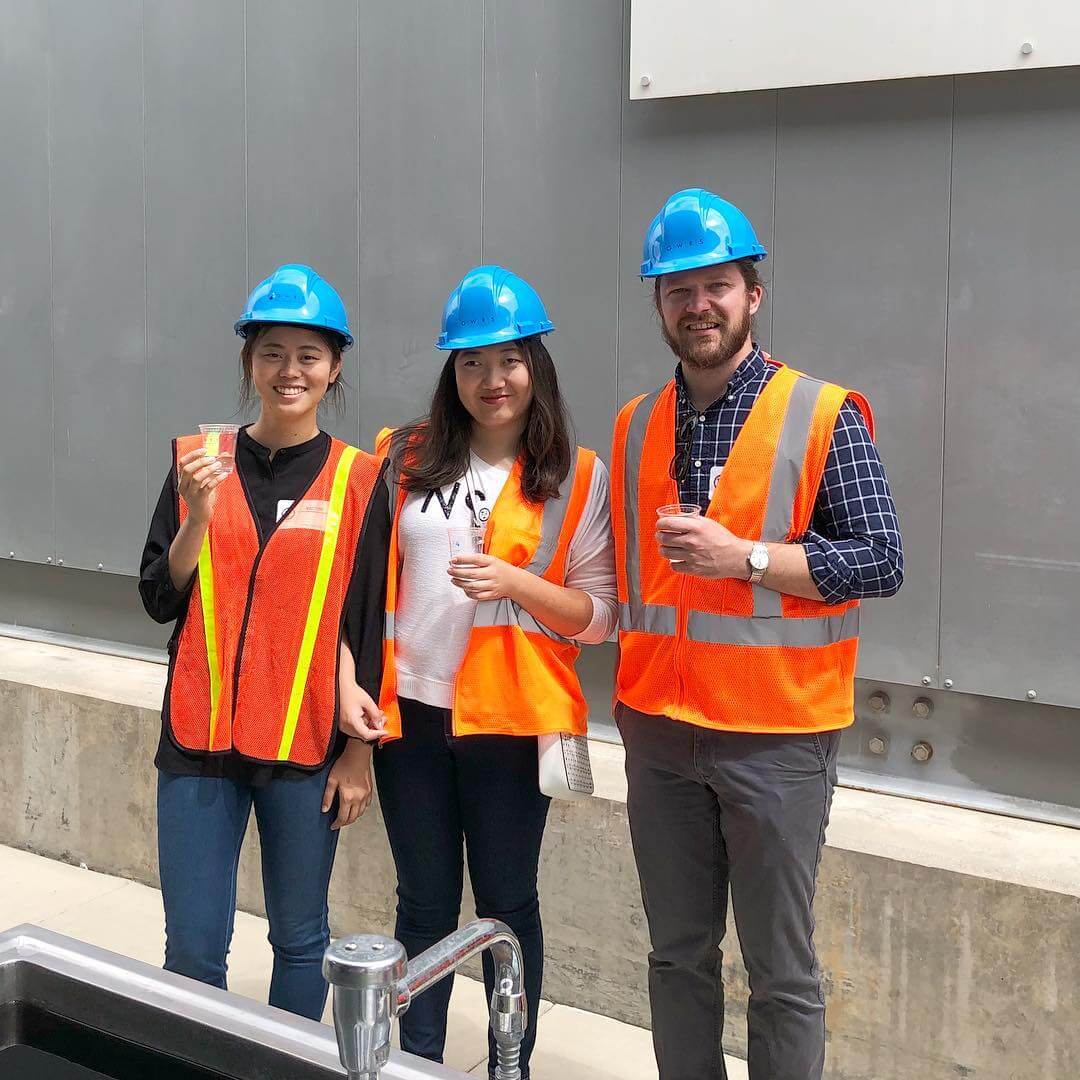
- Engineering for Disaster Resilience
- Engineering for Extreme Habitats
- Engineering for Urban Livability
- Engineering for Environmental Stewardship
- Engineering for Transport Service Systems
Civil Engineering Doctoral Students Citizenship
Civil engineering doctoral students age, fall 2022 podcast: life of a phd student, student & alumni profiles.

Ghena Alhanaee

Preetham Manjunatha
Tour one of our research labs, program information and resources, how to apply, dissertation topics, funding & resources, phd alumni snapshot, usc graduate application, research topics database, recent department videos.
Published on June 8th, 2021
Last updated on August 18th, 2023
- Master’s Programs
- Programs for Non-Engineering Majors
- Application Information & Steps
- Tuition & Funding
- Frequently Asked Questions (FAQ)
- Academic Disciplines
- Faculty/ Research Topic Search
- Frequently Asked Questions (F.A.Q.)
- Executive Education
- All Degree Options
- The DEN@Viterbi Experience
- Getting Started
- Online DEN@Viterbi Offerings
- Rankings and Awards
- Next Steps for Newly Admitted Master’s Students
- Next Steps for Newly Admitted Doctoral Students
- Alternatives to Visiting Campus
- Become a Partner
- Certificate Options
- U.S. Active Duty Military & Veterans
- The Boeing Company
- General Motors – Technical Education Program
- Kuwait Oil Company
- Raytheon Technologies
- Saudi Aramco
Ghena Alhanaee PhD in Civil Engineering
Tell us a little bit about yourself I am from Abu Dhabi, United Arab Emirates where I grew up and spent my formative years all the way to completing my bachelor’s degree at The Petroleum Institute in Abu Dhabi (now renamed Khalifa University). I was always interested in physics and math and after some exploring, found myself intrigued by mechanical engineering which ended up being my maopr for my undergraduate studies. Throughout my studies, I grew more and more interested in the energy sector and had the opportunity to pursue a master’s in energy resources engineering at Stanford University.
What attracted you to choose USC for your graduate studies? I then decided I wanted to continue working on and pursuing research in the energy and environment field, with a specific focus on my hometown and the surrounding region (the Persian Gulf). At the time, UAE had just announced they were constructing 4 nuclear reactors to diversify their energy sector. This would be the first time any of the Gulf Cooperation Council (GCC) countries would enter the nuclear sector, and this really shaped my decision on what I wanted to focus on for my PhD research. I ended up finding an opportunity to work on research focused on my interests at the Civil & Environmental Engineering Department at USC, which brought me to Los Angeles.
Tell us about your interests outside the classroom.
Outside of the classroom, I love taking advantage of the beautiful Californian weather, spending time outdoors, going on hikes, and enjoying the sunshine.
Tell us about some exciting and unforgettable incidents from your two years at USC.
I am now starting my sixth year at USC (hopefully my last!) and have had the opportunity of meeting people from all sorts of backgrounds and countries and cultures. I have really enjoyed connecting with people from all walks of life and different corners of the world, that I wouldn't otherwise have the opportunity to do.
Is there something that may surprise people about you? Something that might surprise people about me is that I am an avid traveler. Whenever there is a vacation or even a long weekend, you will probably see me in a new city, new state or even a new country.
What are your future plans after completing your Phd? After completing my degree, I am open to possibilities and opportunities and will see what comes my way (after taking a long much-needed vacation).
What innovations/discoveries do you hope to see (or be a part of!) in the next ten years? I hope to see and be part of finding more sustainable ways to provide energy and protect the environment. I think we can definitely do better.
Audie Lee PhD in Civil and Environmental Engineering
What’s the best piece of advice you’ve ever been given?
“Think you are the best” my advisor, Dr. Qiming Wang, said. Delivering my screening exam presentation, I shrank and choke before committee members. Everyone could readily figure out I was frozen solid. After it ended, my advisor kindly explained me in detail why I should be or, at least, try to look confident when presenting my idea (basically, no one buys yours when you don’t look like buying yours), and the best way to do so is to think I am the best. At that time, I could understand why he had sometimes told me “Audie, you are smart” or “you are doing great” in the lab – an aha moment. He had been planting seeds of confidence in me for about two years (gosh, I was too dull to figure it out early). Well, in fact, this advice itself is one that everyone can give out easily. But that advice from him reflects his long observation and thoughtfulness towards me – the best piece of advice.
What do you consider your greatest accomplishment?
If my future children say ‘I wanna become a grown-up like my dad,’ that must be the greatest accomplishment ever in my life.
What's your favorite impulse purchase from the past 12 months?
Some Nintendo Switch game cartridges – I don’t have Nintendo Switch and have no plan to get one lol Doesn’t this make you laugh already? Well, just thinking “Someday I’m gonna play it so hard” makes me feel better when I get stressed. I didn’t purchase just a bunch of game cartridges, instead, I bought a collection of (well-sugarcoated) mood shifters.
Please describe a little about your research and what excites you about it.
My research fields include mechanics, wave propagation, metamaterials, and some novel structures. Does it sound like civil engineering topics? Most people usually think that civil engineering is all about soils, rocks, construction, earthquakes, and water. Right, but not ‘all.’ Surprisingly, due to many efforts for interdisciplinary research, the intersection area between research fields has been emerging wide – and that’s where something new is likely to come about. I mix civil engineering, mechanical engineering, materials engineering, and physics all together to bridge novel ideas with reality. Becoming an explorer looking for a treasure chest full of groundbreaking ideas, doesn’t it excite you?
If you could choose any other profession outside of engineering or computer science, what would it be?
Paleontology. Trojans love Jurassic Park and Indiana Jones, right? Forget that Dr. Jones is actually an archeologist. Harrison Ford in Jurassic Park, that’s what I want to be in my second life. Hmm, Han Solo in Jurassic Park is also not a bad idea.
What are some factors that helped you decide to pursue your PhD at USC?
Support from USC. USC always tries its best to offer students an optimal environment for research. Especially, I have been more than just satisfied with the assistantship that USC provides. With all concerns about money-related issues excluded, I can only focus on my research during my Ph.D. career. I profoundly appreciate USC and proud alumni for their financial support.
If you were to recommend to an incoming student 3 places to go in California/Los Angeles, what would they be?
Griffith Observatory: While many tourists perceive it as just one of the popular places in L.A., it comes to me as something like home where I can freely visit and blow away all the stress with the cool breeze, looking at the grid of the city.
El Taurino: It’s one of the best Mexican restaurants in L.A. Luckily, it’s right next to USC. Just go try burritos there. Further words are a waste of ink.
UCLA Rose Bowl: Watching Trojans vs. Bruins football match at Rose Bowl is the best thing you can do in L.A. – Trojans never lose.
What is a memory you'll cherish about your time at USC?
In early 2020, a tragedy visited my family, and I was withering away like barley plants during the Dust Bowl period. But my Ph.D. colleagues and USC staffs picked me up from the dust swamp. Their support was the rope of hope I could hold on to get out of that depression. It was the spirit of ‘Together We Fight On.’ This memory will never fade away.
What's one thing about you that might surprise me?
Nothing. My life has been boring, especially during the COVID-19 period.
What are your plans after graduation?
Pursuing postdoctoral researcher position and faculty position.
Hometown (city, country):
Busan, South Korea
Personal Website (if any):
https://www.linkedin.com/in/ audielee/
Faculty Advisor:
Dr. Qiming Wang
Preetham Manjunatha PhD in Civil engineering
It was given by my mother, "Whatever difficult scenario arises in your life, you should not lose your inner self".
Gaining a small amount of knowledge that lasts forever and pursuing a Ph.D. and two master's degrees at the same time.
I bought a dozen of shirts that I purchased the next day after purchasing a single shirt from a French company, Celio.
The interest in doing research and problem-solving. Also, an immense love of mathematical aspects of Finite Element Analysis (FEA), a structural analysis method, and structural dynamics.
The places which I liked most are Yosemite, Griffith observatory, and Venice beach.
I have several memories, to name some: the first memory was when the Master's thesis committee mentioned that the thesis was the best one they have seen. The second was mentoring master's students from Viterbi CS and EE departments. Third, was when pursuing my first master's degree, the visits to USC, Traditions with friends during the weekends.
That I am a good cook (my friends say that all the time). I love to cook food, I made my first recipes (lentil stew/curry and deep-fried chicken kabab) when I was 10 years old.
City is Mysore, and the country is India.
https://www.linkedin.com/in/ pmanjunatha/
Professor Sami F. Masri.
Ph.D. in Civil Engineering
The Doctor of Philosophy (Ph.D.) degree is an advanced research degree for students wishing to become an expert on a specific area of Civil and Environmental Engineering and train for a career involving independent and cutting-edge research.
The Ph.D. degree in Civil Engineering is a mentored opportunity to become an expert on a specific research topic. This degree is recommended for those who expect to engage in a professional career in research, teaching, or technical work of an advanced nature in civil or environmental engineering.
The Ph.D. degree program in CEE is offered in five areas of specialization:
- Construction Engineering and Management (CEM)
- Environmental and Water Resources Engineering (EWRE)
- Infrastructure Systems Engineering (ISE)
- Structural Engineering (STR)
- Transportation Engineering (TRN)
A Ph.D. degree at UVA requires successful completion of required coursework plus the three following major milestones: Ph.D. Qualifying Exam, Ph.D. Proposal Defense, Ph.D. Dissertation Defense. Additionally, Ph.D. student in CEE must serve as a Graduate Teaching Assistant (GTA) for at least one semester.
See below for information on the Civil Engineering Ph.D. program, or download the CEE GRADUATE HANDBOOK .
Admissions Criteria
We accept applications from candidates with degrees from all engineering and some affiliated backgrounds. In some cases, candidates who do not have engineering or similar credentials will be offered conditional admission, which will require them to take selected undergraduate coursework in addition to the coursework required for their Ph.D.
All candidates are evaluated by one or more of the CEE research subgroups. Some students are admitted directly into a specific research group with a specific advisor. Other candidates are admitted into a subgroup and are then connected with an advisor during the first year.
Most accepted Ph.D. students receive financial aid. Funding offers take the form of GRAs, GTAs and/or various fellowships. Some Ph.D. students are funded by third-party entities (e.g., their employer or government or military agencies). Funded offers include monthly stipends, tuition waiver, and health insurance.
Join our vibrant community of graduate students
Engineering School Requirements
The School of Engineering academic requirements for the Ph.D. degree and steps to graduation can be found on the Office of Graduate Programs webpage . The School of Engineering Office of Graduate Programs also contains helpful resources about academic planning, student life, professional development for current graduate students. More information about the School of Engineering academic rules can be found on the University Registrar's website .
Time limit : All requirements for the Ph.D. degree must be completed within seven years after matriculation to the graduate program.
Program Requirements
The Ph.D. degree in Civil Engineering at UVA requires successful completion of required coursework plus the three major milestones: Ph.D. Qualifying Exam, Ph.D. Propoal Defense, and Ph.D. Dissertation Defense. These are briefly described below and more information can be found in the CEE Graduate Handbook .
The Ph.D. program in Civil Engineering requires relevant coursework to help students access foundational knowledge in their discipline while striking a balance between depth and breadth. A minimum of 24 credits of graduate engineering coursework beyond the bachelor’s degree is required for all the Ph.D. students in Engineering School at UVA. Students with graduate study at other institutions may apply engineering credits from that study towards their 24 hours, but all CEE Ph.D. students must complete at least six credits of coursework from CEE at UVA. Students who earn an ME or MS degree at UVA enroute to a PhD in CEE may use CEE credits from their master’s degree to meet this requirement.
Students must complete the PhD Plan of Study Form and submit it to the CEE Student Services Coordinator before the student takes their Ph.D. Qualifying Exam. The Plan of Study is for departmental use only. Students should maintain a copy for themselves to access it whenever they convene their committee and/or complete a requirement. Official tracking for Engineering School and CEE requirements is done using the academic requirements report.
A Ph.D. degree at CEE at UVA has three key milestones:
- Ph.D. Qualifying Exam: The purpose of the Qualifying Exam is to assess the student’s research aptitude and confirm that they have the skills and knowledge base necessary to conduct original research and to make a substantive contribution in their field.
- To assess whether the student’s knowledge of their chosen area and their understanding of relevant literature is adequate to complete a Ph.D.
- To recommend coursework, approaches/techniques and other resources that would facilitate or enhance the proposed work.
- To evaluate whether or not the proposed work, if completed, would constitute an acceptable basis for a doctoral dissertation.
- Ph.D. Dissertation Defense: The Ph.D. dissertation defense is the culminating step of the Ph.D. process. The purpose of the dissertation defense is to confirm that the completed research constitutes a meaningful contribution to the body of knowledge in the field of Civil and Environmental Engineering and to demonstrate competence in the field of the dissertation research and to ensure that the written quality of the final document is adequate to highlight the value of the work. After successful completion of the dissertation defense, the candidate must submit the dissertation via Libra. For more information on LIBRA and instruction of how to upload, please visit the Dissertation Submission Checklist .
Please review the CEE Graduate Handbook for more information about the timing, format, and committee composition requirements for each exam.
Graduate Teaching Experience
CEE Ph.D. students must serve as a Graduate Teaching Assistant (GTA) for at least one semester. GTAs will enroll for three credits (Satisfactory/Unsatisfactory, or S/U, basis) of CE 8001 in a section corresponding to their supervising instructor. A GTA assignment will not count toward the teaching requirement if the student does not receive an S grade.
All GTAs whose first language is one other than English are required to take the oral section of the UVELPE Test. A score of at least 55 is required for permission to begin teaching without completion of appropriate oral language training. Please refer to CAELC website for more information about the UVELPE test as well as the testing times and registration.
CEE Seminar Series
As an essential component of the graduate program in CEE, Ph.D. students are required to enroll in CE 7001 (with zero credit hours) and attend the CEE seminars during the 2023–2024 academic year.
CEE Seminar Series is a weekly event during the academic year that brings together CEE faculty and students to learn about new research and practices in different areas of civil and environmental engineering. Research presentations are given by Distinguished Speakers from within the university community as well as nationally and internationally recognized researchers and engineers in academia and industry. The weekly seminars also include talks and presentations from CEE graduate students as well as presentations geared towards professional development.
Research Dissemination
- Publication: Ph.D. students are expected to generate peer-reviewed publications from each technical chapter of their dissertation. Publications must be peer-reviewed, co-authored with advisor and with the student as first author. Typically, one or more first-authored peer-reviewed publications will have already been accepted by the time of the Ph.D. defense. Sufficiency of the publication record is determined by the student's Ph.D. Committee.
- Conference/Seminar Presentation: Ph.D. students are required to present their research at least once at a conference, CEE Seminar Series or other public venue approved by the student's Ph.D. Committee.
Overall Timeline
In our Ph.D. Program, the student has tremendous ownership over their own destiny and responsibility for progressing toward their graduation. Hence, the Ph.D.student has the responsibility to manage the timing of their progression. Therefore, it is incumbent on the Ph.D.student to regularly communicate with their advisor to make sure that their progression through the program is following a timeline that is suitable to and in accordance with the expectations of the Ph.D.advisor and the program.
Typically, it takes between 4 to 5 years to successfully complete all the requirements and the milestones of the Ph.D. program in CEE. Students who enter the program with a MS degree are typically able to complete required coursework and take the Ph.D. Qualifying Exam in year 1. It may take those students who enter the program with a bachelor's degree longer to complete the required coursework. The Ph.D.Qualifying Exam must be taken by the end of the second year. All students are required to successfully complete the Proposal Defense at least one year prior to the Final Dissertation Defense . However, students are highly encouraged to complete this milestone by the end of year 3 of their program.
The information contained on this website is for informational purposes only. The Undergraduate Record and Graduate Record represent the official repository for academic program requirements. These publications may be found here .
Doctoral Program in Civil Engineering
The Department of Civil and Urban Engineering currently offers two doctoral degree programs: PhD in Civil Engineering and PhD in Transportation Planning and Engineering. Requirements for the Civil Engineering degree are detailed here. For information on the Transportation Planning and Engineering program, see the “ Transportation ” section of this catalog.
Goals and Objectives
The PhD in Civil Engineering is research-oriented and intended for those whose goal is a career in civil engineering research and/or teaching at the university level or in private research organizations. Specific doctoral program objectives are to develop the skills and knowledge necessary to:
- Specialize within one of the subdisciplines of civil engineering;
- Perform independent fundamental research in one of the subdisciplines of civil engineering;
- Produce a piece of fundamental research that advances meaningfully the state of the art of one of the subdisciplines of civil engineering and is publishable in a first-tier refereed civil engineering related journal.
A PhD is granted for the invention or creation of new knowledge in civil engineering. This knowledge may result from analytical, numerical or experimental research. The knowledge may be practical or fundamental in nature.
Areas of Concentration
Students pursuing the PhD in Civil Engineering must choose to specialize in one of the following subdisciplines of civil engineering:
- Structural Materials and Engineering
- Geotechnical and Geo-environmental Engineering
- Environmental and Water Resources Engineering
- Construction Management and Engineering
- Highway and Traffic Engineering
- Urban Infrastructure Systems
Other focus areas are possible and can be developed with the assistance of faculty advisers. All subject areas must be relevant to the degree sought, and a faculty member must be willing and able to guide the student’s research.
Program Adminstration
The Department of Civil and Urban Engineering has five graduate program coordinators:
- Graduate Program Coordinator for Civil Engineering (MS and PhD)
- Graduate Program Coordinator for Environmental Engineering/ Environmental Science (MS)
- Graduate Program Coordinator for Urban Infrastructure Systems (MS)
- Graduate Program Coordinator for Transportation (MS and PhD)
- Graduate Program Coordinator for Construction Management and Engineering (MS)
The graduate coordinators form the departmental Graduate Committee. The Committee reviews all PhD applications and makes admissions decisions, which are implemented by a graduate coordinator. For each registration, the student’s program must be approved by the academic adviser and signed by the graduate coordinator.
Admission Criteria
- Admission to the PhD in Civil Engineering requires an MS in Civil Engineering or equivalent with a GPA of 3.5 or better (on a 0-4 scale).
- All applicants are required to submit GRE scores for consideration.
- International applicants must take the TOEFL examination and submit the results for consideration.
In criterion 1 above, the “equivalent” can be achieved in several ways. The candidate may have a MS degree with a different title that covers substantially the same material. In more general terms, the applicant must demonstrate that he or she has the equivalent of all undergraduate and master’s-level course work to be able to pursue doctoral-level work in the chosen major area, as well as in a minor area within the umbrella of civil engineering. Further, “equivalence” is evaluated based on the totality of the student’s undergraduate and graduate record, not course by course. Thus, an applicant who wishes to pursue doctoral work in Environmental Engineering, for example, must have the entire undergraduate and master’s-level course background expected in Environmental Engineering, but need not demonstrate such a background in structures. Because admission to a PhD program requires a relevant MS (or equivalent), an applicant who has not yet earned a master’s degree will be admitted as MS student and is expected to earn an MS degree while completing the major and minor course requirements. In rare cases, an applicant with only a BS degree may be directly admitted into the PhD program with the written approval of the department head.
Doctoral Program of Study
Every PhD student upon admission is assigned an academic adviser, who is designated by the department head. Any member of the civil engineering faculty may be an academic adviser to a PhD student. The first meeting should take place shortly after receiving an acceptance letter from the Admissions Office. During this first meeting the student’s Program of Study should be established. The Program of Study should include a list of the fundamental and advanced topics that will comprise the specific courses, the subject matter for the qualifying exam and possible research areas.
In cases where a student is supported on a research contract, the principal investigator of the contract will normally be the student’s academic adviser. Where a student has a particular research interest and is working with a particular faculty member, the student may request that faculty member for his or her academic adviser. In rare cases, when a PhD student enters the program without a prior selection of a major area of study, the initial academic adviser will be the graduate coordinator of the program area. Each PhD candidate reports to two advisory committees: an Academic Advisory Committee and a Dissertation Committee.
Academic Advisory Committee
The Academic Advisory Committee generally consists of the academic adviser and one faculty member for a minor area of study. The Academic Advisory Committee guides the PhD student’s work through the successful completion of a qualifying examination. A letter signed by the academic adviser and approved by the department head is placed in the student’s file indicating the composition of the Academic Advisory Committee.
Doctoral Degree Requirements
To earn a doctoral degree in Civil Engineering, the following requirements must be met:
- 54 credits of graduate course work (not including the PhD dissertation) in relevant major and minor areas of study beyond the bachelor’s degree, with an average grade of B or better (cumulative average of 3.0 or better on a 0-4 scale). Up to 6 credits of the 54 credits may be satisfied by individual guided studies, readings, projects and theses.
CE-GY 998X : Independent original investigation demonstrating creativity and scholarship worthy of publication in a recognized engineering journal. Registration for a maximum of 6 credits is permitted for Ph.D. students prior to passing the Ph.D. qualifying examination. Ph.D. students who passed their qualifying examination should register for CE-GY 999X .
- CE-GY 999X : Independent original investigation demonstrating creativity and scholarship worthy of publication in a recognized engineering journal. Candidates must successfully defend dissertations orally. Registration for 3 to 6 credits per semester is permitted after successfully completing the doctoral qualifying examination, but a minimum of 12 credits must be completed before the defense. Registration must be continuous (excluding summer semesters), unless a formal leave of absence is requested and approved. Registration for 3 to 12 credits is permitted in the final semester of work, with the approval of the department head. Prerequisites: successful completion of doctoral qualifying examinations and approval of the dissertation adviser .
- Completion of one minor area of study, as follows:
- Out of Department Minor: Completion of 9 credits of graduate course work in one technical area of study.
Or
- In-Department Minor: Completion of 9 credits of graduate course work in a minor area outside the major subdiscipline in civil engineering.
- Residency requirements for the PhD in Civil Engineering include the 21-credit dissertation plus a minimum of 15 credits of applicable graduate course work taken at NYU Polytechnic School of Engineering.
- In satisfying the 54-credit course requirement (requirement 1), the student must satisfy all requirements for the major and minor areas selected, or their equivalents.
- 48 credits of relevant graduate course work, not including individual guided studies (readings, projects, theses, etc.) beyond the bachelor’s degree, with an average grade of B or better (cumulative average of 3.0 or better on a 0-4 scale).
- 24 credits of approved graduate course work, not including individual guided studies (readings, projects and theses) beyond the master’s degree, with an average grade of B or better (cumulative average of 3.0 or better on a 0-4 scale). Satisfying condition 6b requires that the department accept the student’s MS degree in toto without regard to its specific content. This acceptance requires a recommendation from the department’s Graduate Committee and department head approval.
- Although publication is not required as a condition for graduation at this time, journal publication is strongly encouraged. Every PhD candidate is expected to generate knowledge worthy of publication in two or more reputable journals.
Transfer Credits
A maximum of 48 credits of approved graduate work may be transferred. Transfer credits for PhD students may be awarded on a course-by-course basis or by the transfer of a MS degree from another institution in satisfaction of 30 graduate credits. The latter requires a recommendation from the department’s Graduate Committee and the approval of the department head. Transfer credits are generally awarded at the time of admission and must be approved by the academic adviser, the graduate coordinator and the department head.
Qualifying Examination
A student must register for RE-GY 9990 Ph.D. Qualifying Exam in the semester in which the qualifying exam will be taken. This course carries no credit, and the student incurs no fees. It provides a place in the student’s official transcript to record when the qualifying exam was taken and the result.
Every student pursuing a PhD must pass a qualifying examination before becoming a candidate for the PhD. The qualifying examination consists of a six-hour written portion (generally given in two three-hour blocks on the same day), and an oral portion which may be given before or after the written portion. Both written and oral portions focus on fundamental and advanced civil engineering topics relevant to the student’s specific program of study.
The oral portion may also explore specific skill areas required to conduct successful independent research. Students are deemed to have passed the examination based upon an overall evaluation of both the written and oral portions of the examination.
The qualifying examination is a pass/fail milestone in the PhD process. A letter indicating the result of each examination is placed in the student’s graduate file. In rare cases, a student may be deemed to have conditionally passed the qualifying exam. This may occur when the student does extremely well in all but one area. Such a student must follow a prescribed plan to strengthen his or her knowledge and skills in the weak area and pass a special examination in the weak area within one calendar year. A student who conditionally passes the qualifying exam may register for dissertation credits and may form a Dissertation Committee.
While each student will take a different qualifying examination based upon an individual program of study, the exam is considered a departmental examination. All department faculty members in each civil engineering subdiscipline may participate in submitting written problems. Each student’s academic advisory committee will review the entire exam before it is administered, and may suggest changes if it deems the examination, as presented, to be an inequitable test of the student’s abilities. Recommendations on examination results are submitted by each student’s Academic Advisory Committee. The departmental faculty, acting as a whole, votes to accept or reject such recommendations at a meeting scheduled for this purpose. Additionally:
- According to NYU Tandon School of Engineering policy, students should take the qualifying exam within their first year of study at NYU Tandon School of Engineering.
- A student may take the qualifying exam once. A second attempt is permitted only with written permission from the Academic Advisory Committee and the approval of the department head. Under no circumstances may a student take the examination more than two times.
- No student may register for CE 999X Dissertation credits until passing the qualifying exam.
- A Dissertation Committee cannot be formed until the student passes the qualifying exam.
- Any student who cannot pass the qualifying exam will be disqualified from the program.
Dissertation Committee
A Dissertation Committee is formed immediately after a student passes the qualifying exam to guide the student’s course of study and research work. This committee will serve as a panel of experts to aid the candidate throughout his or her research.
The Dissertation Committee shall have no less than five members, including a chairperson, a major adviser, and an adviser for each minor the student is pursuing, one of whom must be on the faculty in another NYU Tandon School of Engineering department. One external member who is either a faculty member at another academic institution or a noted PhD-level practitioner is encouraged. Additional faculty members may also serve on the Dissertation Committee.
The members of the Academic Advisory Committee may also serve on the Dissertation Committee. The membership of the Dissertation Committee must be approved by the department head and recorded with the Office of Graduate Academics.
The major adviser, who may also serve as chairperson, must be a full-time faculty member of the Department of Civil and Urban Engineering.
Dissertation Proposal
Upon passing the qualifying exam and the appointment of a Dissertation Committee, the PhD candidate must submit a written Dissertation Proposal outlining the subject of the proposed research. This proposal should be 15 to 20 pages long and should address the following specific items:
- Description of the topic;
- Literature review sufficient to ensure original work;
- Method(s) for the research;
- Data and/or laboratory needs and their availability; and
- Anticipated outcomes.
The Dissertation Proposal must be submitted within one semester of full-time study after passing the qualifying exam, or before 9 credits of dissertation credit are completed.
The Dissertation Proposal is presented orally and defended before the Dissertation Committee and other interested departmental faculty. The date of the oral defense and copies of the draft Dissertation Proposal must be available to departmental faculty at least two weeks (14 calendar days) before the defense.
When the Dissertation Proposal is formally accepted and defended successfully, the chairperson of the Dissertation Committee shall enter a letter into the student’s graduate file, indicating this acceptance, together with a copy of the Dissertation Proposal. While the Dissertation Committee has reasonable flexibility to modify the Dissertation Proposal during the research, any significant change in focus area or methodology requires submission of an amended Dissertation Proposal and formal acceptance as described herein.
Dissertation Defense
The culmination of the student’s PhD work is the oral presentation and defense of the final draft dissertation. A defense is generally scheduled after the Dissertation Committee reviews the draft dissertation and determines that it is complete and of sufficient quality to be presented and defended.
The defense is organized and scheduled by the Dissertation Committee. All Institute faculty members may observe and ask questions at all NYU Tandon School of Engineering dissertation defenses. Therefore, the date of the defense must be announced Institute-wide at least one month before the event, and copies of the draft dissertation must be available to any faculty member who requests one in a timely fashion and in no case less than two weeks before the defense.
Doctor of Philosophy with a Major in Civil Engineering
The Ph.D. program in the School of Civil and Environmental Engineering is offered to students with an excellent academic background and a capacity for independent research.
Major Areas of Specialization are:
- Construction and Infrastructure Systems Engineering
- Environmental Engineering
- Geosystems Engineering
- Structural Engineering, Mechanics and Materials
- Transportation Systems Engineering
- Water Resources Engineering
The Ph.D. program in the School of Civil and Environmental Engineering is offered to students with an excellent academic background and a capacity for independent research. Doctoral candidates tailor a highly individualized Program of Study (typically 50 credit hours of courses beyond the bachelor's degree) to develop expertise in their major specialization area. As part of the Program of Study, candidates must complete a Minor Field of Study . To demonstrate the ability for independent research, the candidate must pass a qualifying examination, a thesis proposal, and a thesis defense. Candidates are required to complete a doctoral thesis reporting the results of original and independent research that derives from the scientific method and demonstrates creativity and technical expertise in the principles and methods essential to modern Civil & Environmental Engineering.
All PhD programs must incorporate a standard set of Requirements for the Doctoral Degree .
This site uses cookies. Review the Privacy & Legal Notice . Email questions to [email protected]
Print Options
Send Page to Printer
Print this page.
Download Page (PDF)
The PDF will include all information unique to this page.

- Doing a PhD in Civil Engineering
What Does a PhD in Civil Engineering Focus On?
If you wish to conduct research into something which has real impact and could directly benefit society on a daily basis, a PhD in Civil Engineering could be for you. Civil Engineering is a broad field that encompasses the design, construction and operation of the built environment which shapes our lives. From designing highways and building bridges to maintaining sewer systems and assessing flood risk, the work of civil engineers is fundamental to allowing cities to work the way they do.
A PhD in Civil Engineering provides you with the opportunity to work with emerging technology and industrial partners, and engage in research that has a direct impact on society. From assessing the accuracy of engineering codes and standards to developing novel approaches to the computational modelling of flood events, each Civil Engineering research project has a real-life application. Beyond this, doctoral study in Civil Engineering could allow you to operate in interdisciplinary research, work with a university’s industry partners, gain expertise and build a foundation for your career as an industry professional.
There are many branches of Civil Engineering, and graduates who wish to pursue doctorate study will have to choose a civil engineering specialization. Examples of popular civil engineering topics include:
- Structural Engineering – A PhD in structural engineering could look at how we can manage the impact of earthquakes on skyscrapers in areas of seismic activity to contribute to the development of resilient structures. Alternatively, this could be a local investigation into a single RC beam, and how reinforcement layout affects material behaviour.
- Geotechnical Engineering – Postgraduate research programmes here could involve assessing the accuracy of ground modelling techniques in different environments, or looking at how vibrations in the ground affect soil properties.
- Hydraulic and Fluid Dynamics – Doctoral research in fluid flow could revolve around coastal engineering or instead could focus on using computational software to model water flows associated with a hydroelectric dam. Other PhD students could focus on wind engineering and involve monitoring fluid flow in small scale wind tunnels built in a laboratory.
- Sustainability – A research project in sustainability could study sustainable design or the reliability of renewable energy sources and how they can be retrofitted into existing systems. Alternatively, a sustainability PhD research degree could look at the growing population and how this may affect city planning or urban development in the near and distant future.
- Environmental Engineering – Postgraduate study in this field could look at identifying potential effects of extreme weather events associated with climate change, such as flooding, and how we can prepare for them.
- Transportation Engineering – A doctoral degree in this branch may involve understanding traffic behaviour in different population densities, or evaluating the effectiveness of public transportation networks.
- Construction Engineering and Management – A PhD in construction management could involve a review of the effectiveness of UK legislation such as CDM 2015.
Browse Civil Engineering PhD Opportunities
From text to tech: shaping the future of physics-based simulations with ai-driven generative models, coventry university postgraduate research studentships, aerodynamics and noise of next-generation distributed propulsion system, high speed photography to investigate surface wear and fatigue in railway rail and wheel steels, improved understanding of the vaiont landslide based on refined modelling using updated geological information, minimum entry requirements for a phd in civil engineering.
The minimum academic entry requirements for a Civil Engineering doctorate programme are usually either a relevant first class honours degree, or a second class honours degree (undergraduate) with a relevant Master’s degree.
It is important that the applicant has a degree in a subject directly relevant to the PhD project. Typically, a Civil Engineering degree is preferred, however, the particular field of study often dictates this, for example: A research project studying geotechnical behaviour could accept degrees in Geography, Environmental Science, and Earth Science. Similarly, a research project modelling structural properties could accept degrees in Maths , Computing, and Physics . Universities also consider applicants with international equivalent qualifications.
Relevant work experience can improve your application. It is therefore advisable for current students, who are considering PhD study to complete internships or summer placements during their graduate study.
Beyond any degree requirement, prospective students also need to provide proof of their English Language ability. Universities will expect international students to have English Language Qualifications, for example, IELTS, TOEFL (iBT) or Pearson PTE scores. The exact score requirements of these exams will vary depending on the university, however typical requirements for a doctoral candidate are stated below:
How Long Does It Take to Get a PhD in Civil Engineering?
Full time Civil Engineering PhD programmes in the UK usually have a duration of 3 years, with part time programmes lasting 6 years. For a full time programme, the first year is normally a probationary year, where the PhD student is required to propose a PhD thesis in Civil Engineering. Upon acceptance, the research phase begins, which typically involves laboratory work, but due to the different civil engineering branches may involve the research students undertaking numerical modelling, programming/computation, or fieldwork. After submission of the PhD thesis, doctoral researchers are required to undergo an oral examination (Viva Voce) before being awarded their PhD degree.
During your project, your supervisor or relevant academic staff for your department may encourage you to present findings and produce papers. You are also likely to be required to attend training courses to progress your transferable skills development for your future career.
Costs and Funding
Annual tuition fees for a UK doctoral student applying to a 2021/22 PhD programme in Civil Engineering are around £4,000 to £5,000. For EU and overseas students, these tuition fees increase to around £20,000 to £24,000 per academic year. Part-time tuition fees are normally proportioned according to the research programme length.
There are many funding opportunities available for Civil Engineering PhDs. Most institutions have Centres for Doctoral Training in Civil Engineering, which offer a number of Engineering and Physical Sciences Research Council ( EPSRC ) studentships to eligible applicants. These studentships and grants cover tuition fees and can provide a maintenance stipend and research travel expenses.
The British Federation of Women Graduates offers a number of scholarships to eligible female postgraduate students. There are also many scholarships for international Civil Engineering students, for example, doctoral candidates from the US can apply to scholarships such as the British Marshall Scholarship or the Fulbright student scholarships which cover the costs of studying a doctoral degree in the UK.
Postgraduate research students may also be eligible for a Postgraduate Doctoral Loan overseen by the UK Government which can provide up to £25,000 for course fees and living costs associated with your research project.
PhD in Civil Engineering Salary and Career Paths
One of the main benefits of Civil Engineering is that the wide applications open up many varied career opportunities. PhD holders have problem solving skills that allow them to transfer into different industries, and it is not uncommon to see Civil Engineering doctorates working in finance, consultancy, engineering research careers and management.
Typical Civil Engineering jobs include:
- CAD Technicians
- Contractors
- Consultants
- Quantity Surveyors
- Project management
Within each of these jobs, there is a wide range of sub disciplines. For example, one contractor may work on the maintenance of wind turbines, whilst another may focus on excavations in marine environments. The typical starting salary for a graduate Civil Engineering role is around £25,000. With experience, this can increase to over £50,000. It should be noted that holding a PhD degree often allows for greater career progression and opens doors to unique and diverse opportunities, with greater levels of responsibility and innovation. Consequently, PhD applicants can expect a more lucrative salary to reflect their expertise.
Typical employers include civil engineering consultancies and contractors, gas and utility companies, government bodies (e.g. Network Rail or Highways England) and research institutes. Universities and other academic institutions are also common employers, as some doctoral students transition from their postgraduate research programme to a teaching role.
Browse PhDs Now
Join thousands of students.
Join thousands of other students and stay up to date with the latest PhD programmes, funding opportunities and advice.

The PhD level program in Civil and Environmental Engineering at Northeastern University is flexible and may be adapted to any subject area in civil and environmental engineering, including interdisciplinary options within the department or across departments or colleges.
In The News
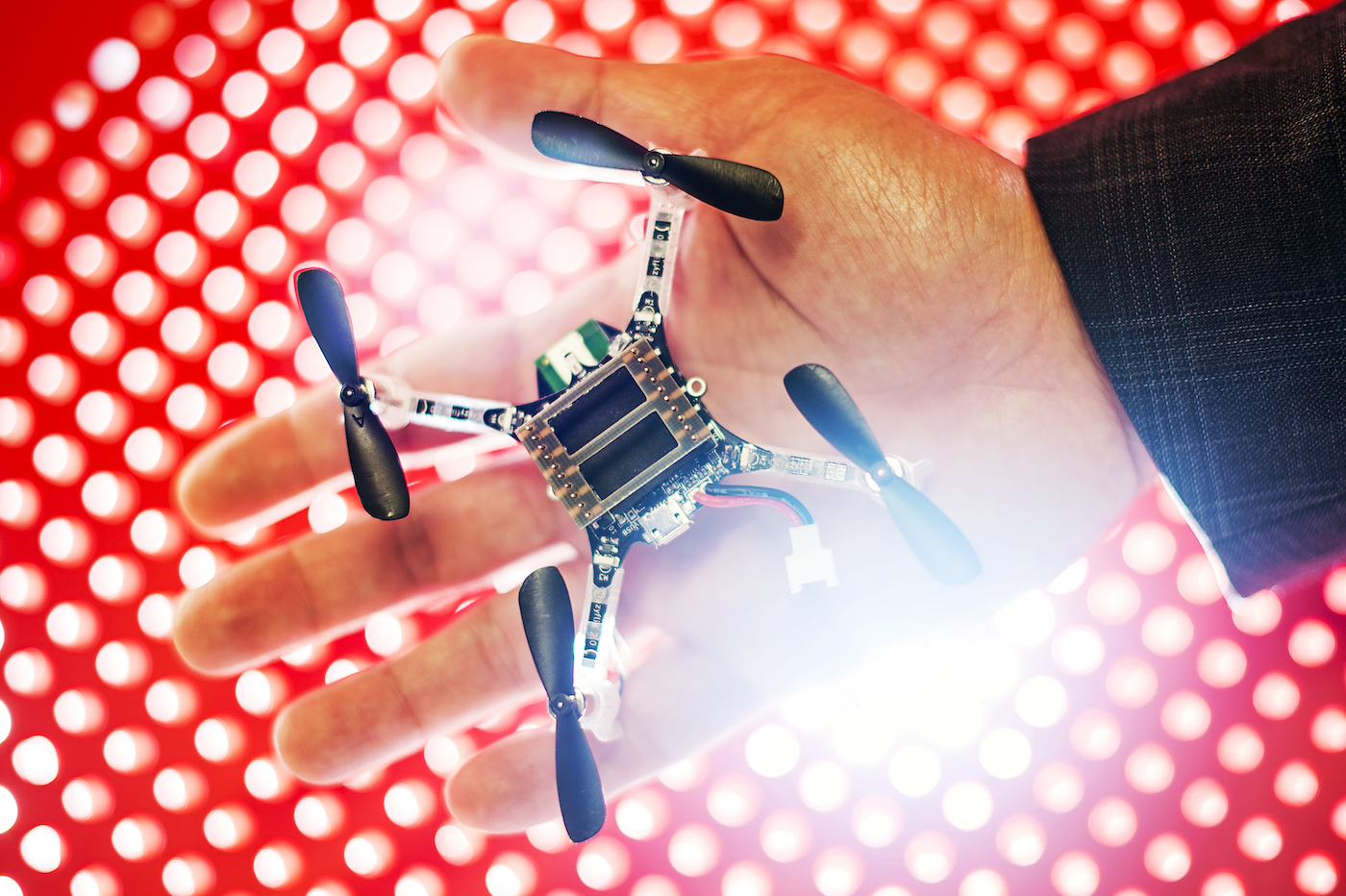
Designing Robots to Detect Building Damage

Zooming in on Climate Predictions
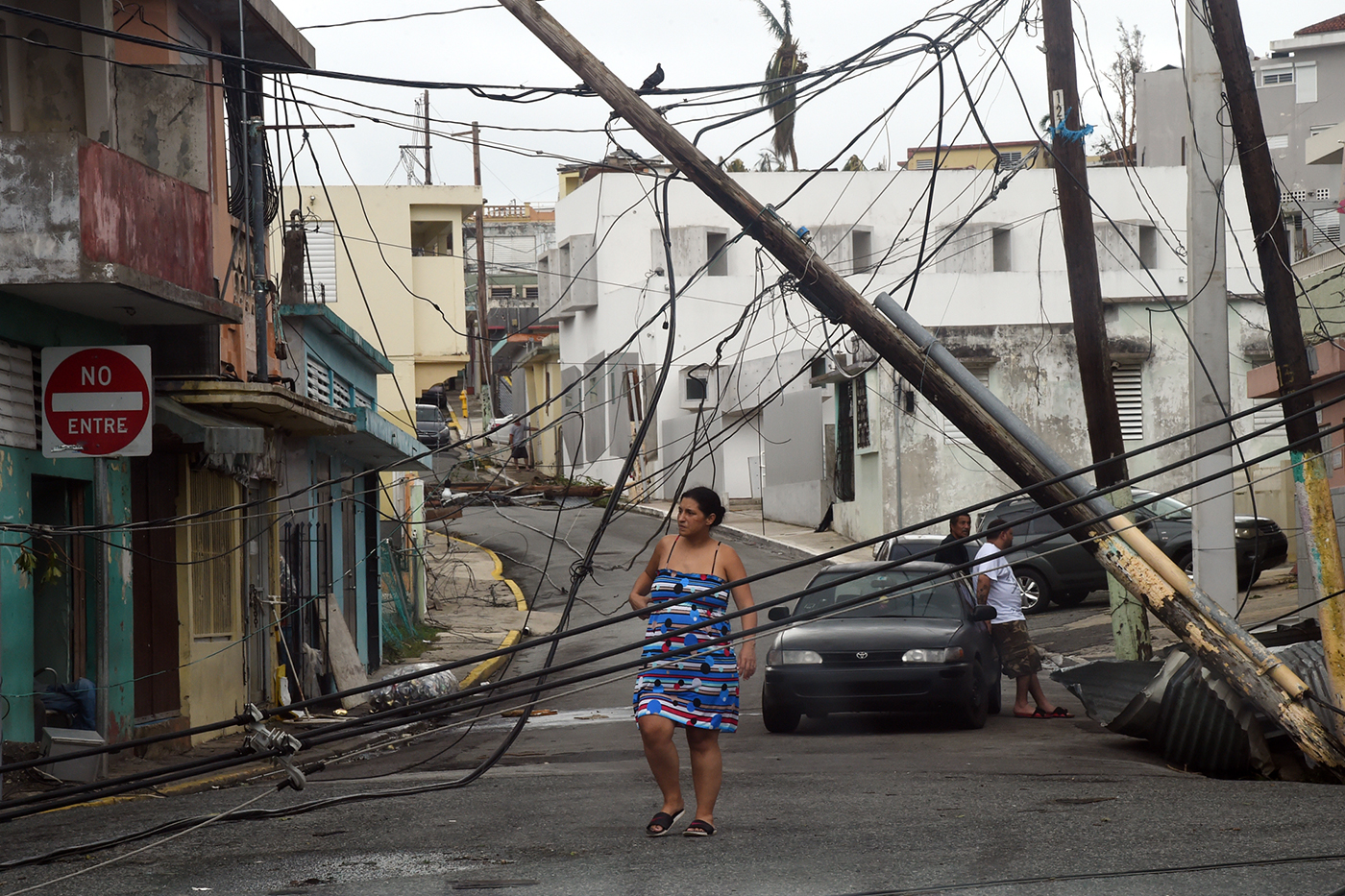
In Puerto Rico, Opportunity in the Wake of Disaster
The coming decades will represent a crucial time as climate change, urbanization, and technological progress profoundly reshape the ways in which we live and work. Northeastern’s strategic focus on urban engineering prepares students for these challenges and opportunities through research and education in sustainable resource engineering, civil infrastructure security, and environmental health.
The PhD program has two components: (1) An academic program of graduate-level courses that provides depth in a specific area of civil and environmental engineering (the major field) as well as other course work that provides additional exposure at an advanced level to one or more disciplines; and (2) the dissertation, an extended independent research effort on a relevant technical problem resulting in an original contribution to the field.
Funding is available for graduate students focused on research in the form of graduate research assistantships, graduate teaching assistantships, and fellowships.
- The department offers Graduate Fellowships to PhD and MS/PhD applicants
- The MS in Civil Engineering and MS in Environmental Engineering can be combined with a Gordon Engineering Leadership Certificate
- The PhD in Civil and Environmental Engineering can be combined with a Gordon Engineering Leadership certificate
Upon completion of their graduate degree, Northeastern CEE students have excellent career opportunities. Our students have gone on to positions in: Academia (University of Massachusetts, University of Vermont) National laboratories (Oak Ridge National Laboratory, Lawrence Berkeley National Laboratory) Industry (AIR Worldwide, CDM Smith, CH2M Hill, start-up firms.) Government agencies
Application Materials
- Completed online application form
- $100 application fee
- Two letters of recommendation
- Transcripts from all institutions attended
- Statement of Purpose
- TOEFL, IELTS, or Duolingo for international applicants
Application
PhD Priority: December 15
International outside US: June 1
International inside US: July 1
Domestic: August 1
- Program Website
Request Information for PhD in Civil and Environmental Engineering
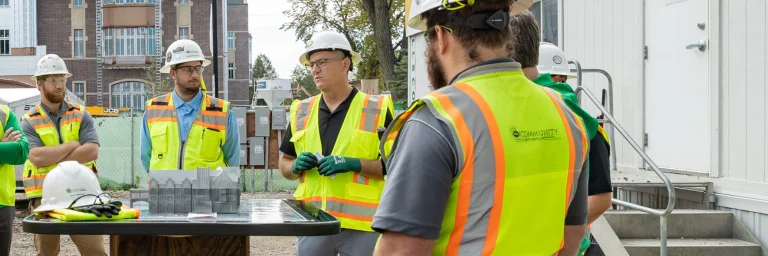
Ph.D. in Civil Engineering
Lead the way in ideating, designing and building tomorrow’s infrastructure, or educating future engineers.
Infrastructure has reached a tipping point where aging buildings, bridges, highways, waterways and other structures urgently need technical civil engineering expertise and new ideas to solve today’s challenges. A doctoral degree from UND offers the knowledge and skills you need to elevate your civil engineering skills and knowledge for greater opportunities in private and public sectors, or education.
Why earn a Ph.D. in civil engineering?
If you're an international student, refer to the international application process for deadlines.
Civil engineers experience no shortage of exciting challenges, growth prospects and a wide range of fascinating specialties to choose from. For those pursuing academia, the opportunity to shape and mold future engineering minds will have an enormous impact on tomorrow's infrastructure designs and structures.
This UND graduate program offers the highest advanced study in civil engineering with opportunities to either choose a career path aimed at a senior-level manager or research leader position, or as an educator in higher education. You'll gain the highest level of skills and expertise related to your chosen specialty or area. Most Civil Engineering Ph.D. students are funded by GRA/GTA and provided with tuition waivers.
UND's Ph.D. in Civil Engineering
Elevate your skills with specialized training customized to meet your interests and goals.
Gain a broad-based education with a curriculum that includes traditional study, multidisciplinary exposure and high-quality research.
Work with a committed faculty team to discover the area of most interest, and explore research and opportunities.
Study at a Carnegie Doctoral Research Institution ranked #151 by the NSF. Students are an integral part of UND research.
Enhance your professional skills at 60+ free workshops offered through the UND School of Graduate Studies. Our goal is to provide you with the workforce skills and job search strategies to succeed.
Gain a competitive edge through UND's Accelerate to Industry (A2i) ™ program. This workforce readiness program provides immersive job training for graduate students and postdoctoral researchers. It is one of only 30 programs nationwide.

What can you do with a Ph.D. in civil engineering?
Students gain the fullest understanding of engineering design with the advanced skills that many global companies in the public and private sector value in their search for top civil engineering talent. For those seeking a career in academia, a Ph.D. offers the ideal path to success.
UND graduates can expect a range of opportunities in many specialties such as:
- Project Management
- Construction
- Environmental
- Transportation
- Geotechnical
UND Civil Engineering alumni have gone on to a variety of successful careers with:
- Kadrmas, Lee & Jackson, Inc.
- WSB & Associates, Inc.
- Bolton & Menk, Inc.
- Burns & McDonnell, Inc.
Ph.D. in Civil Engineering Courses
CE 502. Structural Stability. 3 Credits.
Concept of stability; equilibrium and energy methods; stability of columns, beam columns, and frames; inelastic buckling; stability by slope deflection and matrix methods; use of codes for the stability design of aluminum and steel columns and frames; torsional and lateral torsional buckling of beams and beam columns. Prerequisite: Background/knowledge of mechanics of materials; additional information is available in the CE Graduate Student Handbook on the CE Department website and the CE graduate student blackboard site. On demand.
CE 503. Structural Dynamics. 3 Credits.
Single-degree and multi-degree of freedom systems; continuous systems; free and forced vibrations; harmonic and periodic excitations; viscous and non-viscous damping; pulse excitations; numerical methods for dynamic response; earthquake response of linear elastic buildings; structural dynamics in building codes. Prerequisite: Background/knowledge of mechanics of materials and dynamics; additional information is available in the CE Graduate Student Handbook on the CE Department website and the CE graduate student blackboard site. On demand.
CE 517. Transportation Asset Management. 3 Credits.
Course focused on the principles of transportation asset management with an emphasis on pavement management system (PMS). Network- and project-level pavement management processes will be discussed, but the emphasis will be on network-level. Bridge management system will also be covered. Prerequisite: Background/knowledge of mechanics of materials and statistics; additional information is available in the CE Graduate Student Handbook on the CE Department website and the CE graduate student blackboard site. F, even years.
CE 518. Pavement Engineering. 3 Credits.
Structural pavement design concepts for flexible and rigid pavements; traffic and environmental loading factors; material characterization; hot mix asphalt design and analysis concepts, SuperPave mix design method, stresses and strains in flexible and rigid pavements, joints and load transfer of rigid pavements, fast track concrete, and construction issues. Prerequisite: Background/knowledge of soil mechanics; additional information is available in the CE Graduate Student Handbook on the CE Department website and graduate student blackboard site; consent of instructor for undergraduate students. F.
CE 524. Open Channel Hydraulics. 3 Credits.
Study of advanced topics in open channel hydraulics. Computer applications. Prerequisite: Background/knowledge of hydraulic engineering; additional information is available in the CE Graduate Student Handbook on the CE Department website and the CE graduate student blackboard site. F.
CE 536. Environmental Chemistry. 3 Credits.
Water chemistry in unit Operation and process design for water and wastewater treatment; physical, chemical, and biological systems; plant design project, computer-assigned design analysis. Prerequisite: Background/knowledge of introductory environmental engineering; additional information is available in the CE Graduate Student Handbook on the CE Department website and the CE graduate student blackboard site. F.
Online Civil Engineering Ph.D.
best online university in the nation
best online graduate programs
Flexible Online Civil Engineering Ph.D. Courses
With asynchronous classes, you do not attend class at a set time. If you need to balance work, family, and other commitments, this flexible format allows you to learn anywhere at any time.
Depending on your instructor, you’ll learn online through:
- Lesson modules
- Streaming video content
- Virtual libraries
- Posted lectures
- Online simulations
There will be times when you interact with your instructor and classmates through online discussion boards, polls, and chat rooms.
Your learning revolves around materials that can be accessed on your own time within a set time frame. However, this is not a self-paced course. You’ll have structure and deadlines.
Civil Engineering Ph.D. Research for Online Students
Online Civil Engineering Ph.D. candidates are expected to perform cutting edge research. You must be selected by a research faculty member to join their research group or act as advisor. You will be required to complete research work in person. The research facility could be at your own location depending on the project and thesis topic. You'll work with your faculty advisor to determine how much of the program can be completed online.
Top-Tier Civil Engineering Ph.D. Online
Over a third of UND's student population is exclusively online; plus, more take a combination of online and on campus classes. You can feel reassured knowing you won't be alone in your online learning journey and you'll have resources and services tailored to your needs. No matter how you customize your online experience, you’ll get the same top-quality education as any other on campus student.
- Same degree: All online programs are fully accredited by the Higher Learning Commission (HLC) . Your transcript and diploma are exactly the same as our on-campus students.
- Same classes: You’ll take courses from UND professors, start and end the semesters at the same time and take the same classes as a student on campus.
- Real interaction: You can ask questions, get feedback and regularly connect with your professors, peers and professionals in the field.
- Your own academic advisor: As an invaluable go-to, they’re focused on you, your personal success and your future career.
- Free online tutoring: We're here to help you one-on-one at no cost. Plus, get access to a variety of self-help online study resources.
- Unlimited academic coaching: Need support to achieve your academic goals or feeling stumped by a tough course? We'll help with everything from stress and time management to improving your memory to achieve higher test scores.
- Full online access: Dig into virtual research at UND's libraries. Improve your writing skills with online help from the UND Writing Center. Get online access to career services, veteran and military services, financial services and more.
- 24/7 technical support: UND provides free computer, email and other technical support for all online students.
- Networking opportunities: Our significant online student population means you’ll have a large pool of peers to connect with. UND has numerous online events and activities to keep you connected.
Best Online College
Our high alumni salaries and job placement rates, with affordable online tuition rates make UND a best-value university for online education. UND's breadth of online programs rivals all other nonprofit universities in the Upper Midwest making UND one of the best online schools in the region.
UND ranks among the best online colleges in the nation for:
- Affordability
- Student satisfaction (retention rate)
- Academic quality (4-year graduate rate)
- Student outcomes (20-year return on investment per Payscale.com)
Check out the faculty you'll work with at UND or discover additional education opportunities.
- Department of Civil Engineering
- Find Similar Programs
By clicking any link on this page you are giving your consent for us to set cookies, Privacy Information .
Thank you for visiting nature.com. You are using a browser version with limited support for CSS. To obtain the best experience, we recommend you use a more up to date browser (or turn off compatibility mode in Internet Explorer). In the meantime, to ensure continued support, we are displaying the site without styles and JavaScript.
- View all journals
Civil engineering articles from across Nature Portfolio
Civil engineering is the design and fabrication of structures for improving the way we live and work and for enabling rapid, safe and high-volume transportation. Examples include building roads, railways, bridges, canals, skyscrapers and factories. Modern civil engineering often places a focus on aesthetic considerations and environmental impact.
Latest Research and Reviews
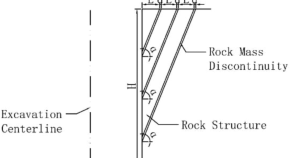
Study on the critical stable height of vertical excavation in rocky foundation pit within layered structural plane
- Ziguang Zhang
- Xueping You
- Mengqing Zhang
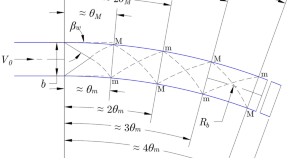
Experimental and numerical investigations of the water surface profile and wave extrema of supercritical flows in a narrow channel bend
- Subhojit Kadia
- I. A. Sofia Larsson
- Elena Pummer
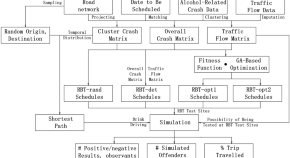
Scheduling optimisation of alcohol test sites
- Emily Moylan
- Mohsen Ramezani
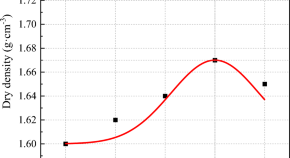
Experimental investigation of influence of amide polymer on loess for subgrade
- Jianwei Yue
- Haonan Zhang
- Shaopeng Xu
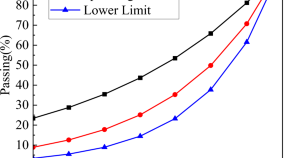
The mechanical and frost resistance properties of pressed concrete blocks mixed with the polymeric aluminum chloride waste residue
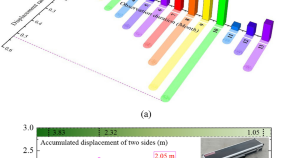
Coupling control technology of anchoring and unloading in deep intense-mining and large-deformation roadway: a case study
- Shuaifeng Yin
- Huiyang Liang
News and Comment
Advanced transport systems: the future is sustainable and technology-enabled.
Transport has always played a major role in shaping society. By enabling or restricting the movement of people and goods, the presence or absence of transport services and infrastructure has historically been determining for cultures to connect, for knowledge to be shared, and for societies to evolve and prosper, or, in contrast, for societies to decay and fail. Since the beginning of the twenty-first century, transport has been going through a revolution worldwide. One of the primary goals for the transport sector is clear: it needs to be decarbonized and become more sustainable. At the same time, technological advances are shaping the transport sector toward smart services and societies. The Special Collection showcases some of the latest advances in research towards sustainable and technology-enabled transport.
- Sybil Derrible
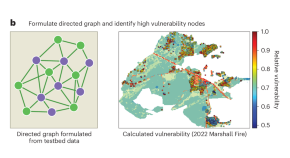
Leveraging epidemic network models towards wildfire resilience
Wildfires have increased in frequency and intensity due to climate change and have had severe impacts on the built environment worldwide. Moving forward, models should take inspiration from epidemic network modeling to predict damage to individual buildings and understand the impact of different mitigations on the community vulnerability in a network setting.
- Hussam Mahmoud
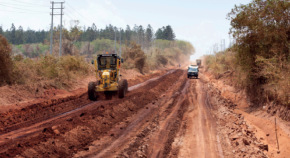
Inclusive and resilient mobility
- Danyang Cheng
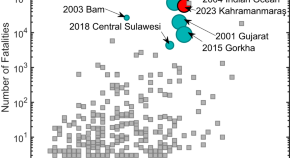
The 2023 Kahramanmaraş Earthquake Sequence: finding a path to a more resilient, sustainable, and equitable society
Learning from the 2023 Kahramanmaraş Earthquake Sequence offers valuable insights into disaster recovery. Carmine Galasso and Eyitayo Opabola delve into the intricacies of the “Build Back Better” (BBB) concept, underscoring the importance of recovery and reconstruction efforts toward a future that is not only more resilient but also more sustainable and equitable.
- Carmine Galasso
- Eyitayo A. Opabola
Material durability, material failure, and material investment—the complexity of concrete
Recent high-profile concrete material failures, including the collapse of parts of public buildings in the UK, have highlighted the need for a greater understanding of the durability of concrete. Here, John Provis explores the need to recognise the complexity of concrete when planning both the research and application of this key construction material.
- John L. Provis
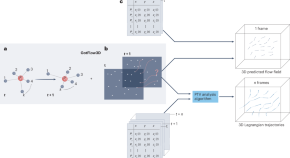
Catching up with missing particles
The implementation of particle-tracking techniques with deep neural networks is a promising way to determine particle motion within complex flow structures. A graph neural network-enhanced method enables accurate particle tracking by significantly reducing the number of lost trajectories.
- Séverine Atis
- Lionel Agostini
Quick links
- Explore articles by subject
- Guide to authors
- Editorial policies
Main navigation
- Graduate programs
- How to apply
- Research & supervision
- Student experience
- Connect with us
Civil Engineering (PhD)
Program description.
The Doctor of Philosophy (Ph.D.) in Civil Engineering offered by the Department of Civil Engineering in the Faculty of Engineering is a research-intensive program that emphasizes enriching and forward-thinking learning opportunities. The program's objective is to equip students with skills in intellectual curiosity, information synthesis, and the presentation of complex topics to pursue professional opportunities in academia or industry.
Unique Program Features
- Students obtain a deeper understanding of their area of specialty through courses selected with their supervisor;
- Research in the Department can be grouped into four main areas: environmental engineering and water resources management, fluid mechanics and hydraulic engineering, geotechnical and geoenvironmental engineering, as well as structural engineering and construction materials.
University-Level Admission Requirements
- An eligible Bachelor's degree with a minimum 3.0 GPA out of a possible 4.0 GPA
- English-language proficiency
Each program has specific admission requirements including required application documents. Please visit the program website for more details.
Visit our Educational credentials and grade equivalencies and English language proficiency webpages for additional information.
Program Website
PhD in Civil Engineering website
Department Contact
Graduate Program gradinfo.civil [at] mcgill.ca (subject: PhD%20in%20Civil%20Engineering) (email)
Available Intakes
Application deadlines.
Note: Application deadlines are subject to change without notice. Please check the application portal for the most up-to-date information.
Application Resources
- Application Steps webpage
- Submit Your Application webpage
- Connecting with a supervisor webpage
- Graduate Funding webpage
Application Workshops
Consult our full list of our virtual application-focused workshops on the Events webpage.
Department and University Information
Graduate and postdoctoral studies.

- USF Research
- USF Libraries
Digital Commons @ USF > College of Engineering > Civil and Environmental Engineering > Theses and Dissertations
Civil and Environmental Engineering Theses and Dissertations
Theses/dissertations from 2023 2023.
The Influence of Corrosion Mitigating Fluids on Post Tensioned Tendon Grout Properties and Steel to Grout Bond Strength , Sarita Ale Magar
Exploring Alternative Electron Donors for Heterotrophic Denitrification at a Water Reclamation Facility in Tampa Bay , Tejas Athavale
Mechanisms Contributing to Hydrogen-Influenced Early Failure of Bridge Tendons , David Dukeman
The Influence of Bipolar Electrochemical Cell Geometry on the Studies of Pitting Corrosion , Amin Kazem Ghamsari
Field-Base Exploratory Study of Microbial Activity in Eight Potable Water Storage Tanks in Barbados , Katelyn M. Long
Land Use/Land Cover Uncertainty Analysis Using Hydrological Modeling in the Northern Watershed of Lake Okeechobee , Andres Lora Santos
Modeling Leachate Treatment Processes in Adsorbent-amended Hybrid Constructed Wetland , Ishfaqun Nisa
Effects of Downdrag on Pile Performance , Ruthvik Pendyala
Anaerobic Digestion of Brewery Waste Including Spent Yeast and Hops , Dhanashree Rawalgaonkar
Characteristics and Hydraulic Behavior of Adsorptive Media for Use in Permeable Reactive Barriers , Shelby Rocha
Exploratory Data-Driven Models for Water Quality: A Case Study for Tampa Bay Water , Sandra Sekyere
Interdependency between Water and Road Infrastructures: Cases and Impacts , Shihab Uddin
Hurricanes and Tropical Storms’ Impact on Water Quality in Lake Okeechobee, Florida , Daniela Vasquez Diaz
Exploration of Shared Passenger Urban Air Mobility – Integrated Network Design, Operation Scheduling and System Configuration , Zhiqiang Wu
Rehabilitation Technologies to Abate Infiltration in Sanitary Sewers , Steve Youssef
Adsorption of Long and Short Per- and Polyfluoroalkyl Substances (PFAS) onto Granular Activated Carbon and Porous Organic Polymers , Yan Zhang
Adiabatic Temperature Rise and Durability Performance of Slag Blended Concrete , Hai Zhu
Theses/Dissertations from 2022 2022
Effects of Downdrag on Pile Performance , Malaak Omelia Araujo
Quantifying a 21-year Surface Water and Groundwater Interaction in a Ridge and Valley Lake Environment Using a Highly Constrained Modeling Approach , Richard T. Bowers Jr.
A Convergent Approach to Aqueous Lead (Pb) Mitigation of a Supplemental Self-Supply Shallow Groundwater Source Accessed by Handpumps in Madagascar , Adaline Marie Buerck
Identifying Significant Factors Affecting the Likelihood and Severity Level of Shared E-scooter Crashes , Recep Can Cakici
Evaluation of Aluminum Dissolution, Current Density, and Pitting Patterns During Electrocoagulation , Monica Castro Carias
Carbon Diversion, Partial Nitritation/Anammox Enrichment, and Ammonium Capture as Initial Stages for Mainstream Ion Exchange-Deammonification Process , Sheyla Chero-Osorio
Data Driven Approaches for Understanding and Improving Urban Mobility , Yujie Guo
Assessment of Scoured Bridges Subjected to Vessel Impact Using Nonlinear Dynamic Analysis , Amir S. Irhayyim
Assessment and Prevention of Bacterial Regrowth in Stored Household Water in Eastern Coastal Madagascar , Lauren Judah
The Impact of Land Use Change on Hydrology Using Hydrologic Modelling and Geographical Information System (GIS) , Nattachan Luesaksiriwattana
Simulating Flood Control in Progress Village, Florida Using Storm Water Management Model (SWMM) , Azize Minaz
Effects of Slurry Type on Drilled Shaft Strength , Cesar Quesada Garcia
Comparison Study of Consumer’s Perception toward Urban Air Mobility in the United States and Rest of the World Using Social Media Information , S M Toki Tahmid
Advanced Methods for Railroad Station Operation Decisions: Data Analytics, Optimization, Automation , Yuan Wang
High-Risk Traffic Crash Pattern Recognition and Identification Using Econometric Models and Machine Learning Models , Runan Yang
Biochar Amended Biological Systems for Enhanced Landfill Leachate and Lignocellulosic Banana Waste Treatment , Xia Yang
Passive Radiative Cooling by Spectrally Selective Nanoparticles in Thick Film Nanocomposites , David Allen Young
Theses/Dissertations from 2021 2021
A System Architecture for Water Distribution Networks , Noha Abdel-Mottaleb
Sustainability Assessment of a Pressure Retarded Osmosis System , Samar Al Mashrafi
Health Risk Assessment of Local Populations Ingesting Water with Naturally Occurring Arsenic and Fecal Related Contaminants in Lake Atitlan, Guatemala , Marisol Alvarez
Influence of Coating Defects Within the Lock Seams on the Corrosion Performance of Aluminized Steel Drainage Pipes , Mohammed Al Yaarubi
Longitudinal Trajectory Tracking Analysis for Autonomous Electric Vehicles Based on PID Control , Hossein Amiri
An Assessment and Exploration of Recent Methodological Advances in Safety Data Analysis , Suryaprasanna Kumar Balusu
Pressure Retarded Osmosis: A Potential Technology for Seawater Desalination Energy Recovery and Concentrate Management , Joshua Benjamin
Assessing the Feasibility of Microbially Managed Biological Filtration in U.S. Drinking Water Systems for Removal of Contaminants of Emerging Concern , Andrew J. Black
The Effect of Cement and Blast Furnace Slag Characteristics on Expansion of Heat-Cured Mortar Specimens , Jair G. Burgos
A Systems Approach for Improving the Performance of Rural Community-Managed Water Systems Using SIASAR: Case Studies in Bolivia and Colombia , Rachel A. Cannon
Passive Nitrifying Biofilters for Onsite Treatment of Saline Domestic Wastewater , Daniel Arnulfo Delgado
Plastic Pollution in Urban Rivers: Spatial and Temporal Patterns of Plastic Release and Transport , Charlotte Juliane Haberstroh
Effects of Nitrate on Arsenic Mobilization during Aquifer Storage and Recovery , Hania Hawasli
Prediction of the Effects of Turbulence on Vehicle Hydroplaning using a Numerical Model , Thathsarani Dilini Herath Herath Mudiyanselage
Shortcut Nitrogen Removal in Photo-sequencing Batch Reactor, Experiments, Dynamic Model and Full-scale Design , Sahand Iman Shayan
Chorine Conversion: Biological and Water Quality Impact on Activated Carbon Block Point of Use Filters , Horace S. Jakpa
Efficient Management of Nitrogen and Phosphorus at Centralized Water Reclamation Facilities , Helene Kassouf
Building and Characterizing a Lab-Scaled Aquifer Storage and Recovery System , Murat Can Kayabas
Corrosion Rate Prediction in FRP-Concrete Repair , Mohammad A. Khawaja
Use of Biochar and Zeolite for Landfill Leachate Treatment: Experimental Studies and Reuse Potential Assessment , Thanh Thieu Lam
Feasibility of Epoxy Bond Enhancement on High-Strength Concrete , Amanda A. Lewis
Leaf Cutter Ant Nest Soil Cement Stabilized Earthen Bricks: Materials and Methods for Engineering Field Applications , Faith Malay
Minimum Cut-Sets for the Identification of Critical Water Distribution Network Segments , Xiliang Mao
An Assessment of Nutrient Improvement in Surface Water Due to the Conversion of Onsite Sewage Treatment and Disposal Systems to Sewerage , Jenelle A. Mohammed
Development of a Numerical Process Model for Adsorbent-amended Constructed Wetlands , Lillian Mulligan
Corrosion Propagation of Stainless Steel Reinforced Concrete , Nelly Sofía Orozco Martínez
Corrosion Durability Service Life of Calcium Silicate-Based Reinforced Concrete , Carolina Páez Jiménez
Assessment of the Environmental Sustainability of a Small Water Production Facility in Madagascar , Jesal Patel
Computational Fluid Dynamics (CFD) Analysis of the Hydraulic Performance and Bio-kinetics in a Full-Scale Oxidation Ditch , Kiesha C. Pierre
Biochar Amended Bioretention Systems for Nutrient and Fecal Indicator Bacteria Removal from Urban and Agricultural Runoffs , Md Yeasir Arif Rahman
Understanding the Leaching Mechanism for Lead (Pb) Found in Components of Locally Manufactured Handpumps in Eastern Madagascar , Nidhi Shah
Impacts of Automated Vehicle Technologies on Future Traffic , Xiaowei Shi
Community Assessment of Water Perceptions and Household Point-of-Use Treatment Methods in Madagascar , Isabella Rose Silverman
Laboratory Examination of Lead Weights Harvested from Pitcher Pumps in Eastern Madagascar , Madelyn Wilson
Impact of grain morphology on the temporal evolution of interfacial area during multi-phase flow in porous media , Fizza Zahid
EAV Fleet Management in Transportation and Power Systems , Dongfang Zhao
Theses/Dissertations from 2020 2020
A Framework for Assessing the Reliability, Availability, Maintainability, and Safety (RAMS) of Decentralized Sanitation , Adefunké Adeosun
Development of an Organic Processor Assembly (OPA) for Sustainable Resource Recovery to Enable Long-Duration, Deep-Space Human Exploration (LoDDSHE) , Talon James Bullard
Black Lives Matter in Engineering, Too! An Environmental Justice Approach towards Equitable Decision-Making for Stormwater Management in African American Communities , Maya Elizabeth Carrasquillo
Coral Reef Restoration in the Tropical West Atlantic Amid the COVID-19 Pandemic , Linden Cheek
Designing Next-generation Transportation Systems with Emerging Vehicle Technologies , Zhiwei Chen
Strength Restoration of Corrosion Damaged Piles Repaired with Carbon Fiber Reinforced Polymer Systems , Jethro Clarke
Water Quality and Sustainability Assessment of Rural Water Systems in the Comarca Ngäbe-Buglé, Panama , Corbyn Cools
Rapid Cross-Section Imaging with Magnetic and Impedance Sensors for Grout Anomaly Detection in External Post-Tensioned Tendons , Hani Freij
Enhanced Nitrogen, Organic Matter and Color Removal from Landfill Leachate by Biological Treatment Processes with Biochar and Zeolite , Bisheng Gao
Bond Life of Structural Epoxy-Concrete Systems Under Accelerated Hygrothermal Aging , Philip W. Hopkins
Socio-Technical Transitions in the Water Sector: Emerging Boundaries for Utility Resilience in Barbados , Wainella N. Isaacs
Structural and Agricultural Value at Risk in Florida from Flooding during Hurricane Irma , Alexander J. Miller
An Inferential Study of the Potential Consumer Value of Free Charging for Users of Public Electric Vehicle Charging Infrastructure , Divyamitra Mishra
Reimagining Bottom-up Participatory Climate Change Adaptation in the Philippines , Emily Clark Nabong
Effects of Physical and Chemical Characteristics of Slags and Cements on Durability of Portland Cement-Slag Blended Systems , Farzaneh Nosouhian
Using a Systems Thinking Approach and Health Risk Assessment to Analyze the Food-Energy-Water System Nexus of Seaweed Farming in Belize , Estenia J. Ortiz Carabantes
Implementation of Large-Scale Anaerobic Digestion of Food Waste at the University of South Florida , Karamjit Panesar
Enhanced Fluoride Removal in Biosand Filters Using Aluminum Oxide Coated Media and Modified Filter Design , Madison Leigh Rice
Use of Sugarcane Bagasse Ash as Partial Cement Replacement in Interlocking Stabilized Soil Blocks (ISSBs) , Adah Shair
Bio-electrochemical Denitrification Systems and Applications for Nitrogen Removal in On-Site Wastewater Treatment , Kamal Ziad Taha
Development of an Integrated Direct Membrane Filtration (DMF) and Anaerobic Membrane Bioreactor (AnMBR) System for Dilute Municipal Wastewater Treatment , Ahmet Erkan Uman
Post-overlay Flexible Pavement Performance Modeling and Its Application in Sustainable Asphalt Overlay Policy Making , Chunfu Xin
Sustainable Nutrient Management Through Technology-Level Evaluation and System-Level Optimization , Xiaofan Xu
Influence of Glass Fiber Reinforced Polymer Wraps on Corrosion Progression of Bridge Piles in Marine Environments , Shayan Yazdani
Theses/Dissertations from 2019 2019
Seepage-Coupled Finite Element Analysis of Stress Driven Rock Slope Failures for BothNatural and Induced Failures , Thomas Becket Anyintuo
Statistical Analysis of the Role of Socio-Demographic and Health Factors in Shared Mobility Related Behaviors and Usage Likelihoods , Natalia M. Barbour
Advanced Search
- Email Notifications and RSS
- All Collections
- USF Faculty Publications
- Open Access Journals
- Conferences and Events
- Theses and Dissertations
- Textbooks Collection
Useful Links
- Rights Information
- SelectedWorks
- Submit Research
Home | About | Help | My Account | Accessibility Statement | Language and Diversity Statements
Privacy Copyright
- Apply Today
Current Students
- The Graduate School
My UNC Charlotte
Campus events, prospective students.
- About UNC Charlotte
- Campus Life
- Graduate Admissions
Faculty and Staff
- Human Resources
- Auxiliary Services
- Inside UNC Charlotte
- Academic Affairs
- Financial Aid
- Student Health Center
Alumni and Friends
- Alumni Association
- Advancement
- Make a Gift
Civil Engineering (Ph.D.)
Program director.
ScholarWorks@UMass Amherst
Home > Engineering > CEE > CEE_DISS

Civil & Environmental Engineering Dissertations Collection
Current students, please follow this link to submit your dissertation.
Dissertations from 2024 2024
DEVELOPMENT OF A DECISION SUPPORT SYSTEM WEBTOOL FOR HISTORIC AND FUTURE LOW FLOW ESTIMATION IN THE NORTHEAST UNITED STATES WITH APPLICATIONS OF MACHINE LEARNING FOR ADVANCING PHYSICAL AND STATISTICAL METHODOLOGIES , Andrew F. DelSanto, Civil and Environmental Engineering
Application of Machine Learning in Improving Maintenance Scheduling of Railway Tracks , Saeed Goodarzitaeme, Civil and Environmental Engineering
Dissertations from 2023 2023
FUNCTIONALIZING THREE-DIMENSIONAL SUPERHYDROPHOBIC MATERIALS , Li He, Civil and Environmental Engineering
Spatial Analyses of Pedestrian Network Safety, Accessibility, and Equity Across Metropolitan Regions , Emily Rose Hennessy, Civil and Environmental Engineering
Steel deck diaphragms: Characterizing the hysteretic behavior of light gage steel, screw-fastened, support and sidelap connections and the influence of support connections on the stability behavior of panels , Divyansh Kapoor, Civil Engineering
WATER RESOURCES PLANNING UNDER DEEP UNCERTAINTY FOR PHYSICALLY, SOCIALLY, AND POLITICALLY COMPLEX SYSTEMS , Sarah St. George Freeman, Civil and Environmental Engineering
Dissertations from 2022 2022
SIZE PROGRESSION OF OXYGENIC PHOTOGRANULES (OPGs) AND ITS EFFECT ON OPG WASTEWATER TREATMENT , Ahmed S.A. Abouhend, Civil and Environmental Engineering
Optimizing Transportation Systems with Information Provision, Personalized Incentives and Driver Cooperation , Sayeeda Ayaz, Civil and Environmental Engineering
LATERAL RESPONSE OF COLD-FORMED STEEL DIAPHRAGMS WITH VARIABLE SHEATHING , Hernan Castaneda, Civil Engineering
ENHANCING MANAGEMENT OF BUILT AND NATURAL WATER AND SANITATION SYSTEMS WITH DATA SCIENCE , Nelson da Luz, Civil and Environmental Engineering
ASSESSING THE IMPACT OF BICYCLE TREATMENTS ON BICYCLE SAFETY: A MULTI-METHODS APPROACH , Aikaterini Deliali, Civil and Environmental Engineering
REMOTE SENSING OF HIGH LATITUDE RIVERS: APPROACHES, INSIGHTS, AND FUTURE RAMIFICATIONS , Merritt E. Harlan, Civil and Environmental Engineering
Experimental Investigation of Clay Aggregate and Granular Biofilm Behavior , Tao Jiang, Civil and Environmental Engineering
Big Data Nanoindentation: Concepts, Principles and Applications to Cemented Materials , Yucheng Li, Civil and Environmental Engineering
Analysis and Fate of 2,6-Dichloro-1,4-Benzoquinone in Real and Model Drinking Waters , Aarthi Mohan, Civil Engineering
PREDICTING WATER QUALITY VULNERABILITY UNDER CLIMATE CHANGE WITH MACHINE LEARNING , Khanh Thi Nhu Nguyen, Civil and Environmental Engineering
THE ROLE OF EXTRACELLULAR POLYMERIC SUBSTANCES IN THE ACCUMULATION AND TRANSPORT OF POLYSTYRENE NANOPARTICLES IN BIOFILMS , Joann Marie Rodríguez Suarez, Civil and Environmental Engineering
Equitable resource allocation to improve safety: An evaluation based on risk , Alyssa M. Ryan, Civil Engineering
Dissertations from 2021 2021
DENSITY STATE AND SHEAR BEHAVIOR OF GRANULAR SOILS WITH INFLUENCE OF PARTICLE SIZE DISTRIBUTION , Yibing Deng, Civil and Environmental Engineering
Harnessing the Mechanics of Thin-Walled Metallic Structures: from Plate-Lattice Materials to Cold-Formed Steel Shear Walls , Fani Derveni, Civil and Environmental Engineering
Cold-Formed Steel Stud Assemblies Bearing on Concrete Slabs , Abbas Joorabchian, Civil and Environmental Engineering
EXTRACELLULAR POLYMERIC SUBSTANCES IN OXYGENIC PHOTOGRANULES: INVESTIGATION OF THEIR ROLE IN PHOTOGRANULATION IN A HYDROSTATIC ENVIRONMENT , Wenye Camilla Kuo-Dahab, Civil and Environmental Engineering
Prediction of the Formation, Speciation, and Health Risks of Unregulated Disinfection Byproducts in Drinking Water using a Kinetic Binomial Model , Xian Ma, Civil and Environmental Engineering
Material Property Heterogeneity in Dimensional Lumber and its Relationship to Mass Timber Performance , Fiona O'Donnell, Civil and Environmental Engineering
MULTISCALE INVESTIGATION OF THIXOTROPY IN SOFT CLAYS , Jing Peng, Civil Engineering
Optimization and Technology-Based Strategies to Improve Public Transit Performance Accounting for Demand Distribution , Charalampos Sipetas, Civil and Environmental Engineering
Understanding the Safety Impacts of Left-Turn Infrastructure on the Vulnerable Driving Population , Francis Tainter, Civil and Environmental Engineering
A Comprehensive Protocol for Inspection and Assessment of Aging Steel Bridges: Experiments, Computations and 3D Laser Scanning of Field Corroded Girders , Georgios Tzortzinis, Civil and Environmental Engineering
Synthesis and Properties of a Novel Class of Superhydrophobic Hybrid Organic-Inorganic Polymers , Dongfang Wang, Civil Engineering
BUCKLING OF THIN CYLINDRICAL SHELLS: IMPERFECTION SENSITIVITY, NON-DESTRUCTIVE TECHNIQUE FOR CAPACITY PREDICTION AND APPLICATION FOR WIND TURBINE TOWERS , Kshitij Kumar Yadav, Civil and Environmental Engineering
Dissertations from 2020 2020
Investigating the role of iron in the photogranulation phenomenon , Abeera Ayaz Ansari, Civil Engineering
Characterization of a Natural Clayey Silt and the Effects of Sample Disturbance on Soil Behavior and Engineering Properties , Øyvind Blaker, Civil and Environmental Engineering
METHODOLOGIES FOR RESERVOIR SYSTEMS ANALYSIS: APPLICATION OF OPTIMIZATION AND DEEP LEARNING , Soheyl Borjian, Civil Engineering
SYNTHESIS AND CHARACTERIZATION OF GEOPOLYMERS CAST AND CURED IN SALINE WATER AND THE POTENTIAL APPLICATION IN CONSTRUCTION ENGINEERING , Xiaonan Ge, Civil and Environmental Engineering
SCALING UP THE OXYGENIC PHOTOGRANULE (OPG) WASTEWATER TREATMENT PROCESS , Joseph G. Gitau, Civil and Environmental Engineering
EVALUATION OF DRIVERS' TRUST IN AUTOMATED VEHICLES , Foroogh Hajiseyedjavadi, Civil and Environmental Engineering
NANOINDENTATION CHARACTERIZATION OF ELASTIC PROPERTIES OF SHALES AND SWELLING CLAY MINERALS , Shengmin Luo, Civil and Environmental Engineering
Dissertations from 2019 2019
FINITE ELEMENT SIMULATION OF BONDED AND MECHANICALLY ANCHORED SHEAR INTERFACES OF EXTERNALLY APPLIED FRP SHEETS TO CONCRETE AND WOOD-CONCRETE COMPOSITES , Alaa Al-Sammari, Civil Engineering
A Multiline Anchor Concept for Floating Offshore Wind Turbines , Casey Fontana, Civil Engineering
EQUITY AND EFFICIENCY IN MULTI-MODAL TRANSPORTATION SYSTEMS , Nicholas M. Fournier, Civil and Environmental Engineering
Applications of Machine Learning Methods in Macroscopic Crash Analysis for Transportation Safety Management , Somaye Garmroudi Dovirani, Civil and Environmental Engineering
MECHANICAL PERFORMANCE OF STRUCTURAL SYSTEMS WITH MISSING MEMBERS: FROM BUILDINGS TO ARCHITECTED MATERIALS , Panagiotis Pantidis, Civil and Environmental Engineering
EVALUATION OF THE EFFECT OF BOTTOM BAR SPLICE LOCATION ON PERFORMANCE OF BEAMS IN REINFORCED CONCRETE PERIMETER FRAMES , Jorge Rivera Cruz, Civil Engineering
Laboratory Study of the Geotechnical Properties of Abraded Railway Ballast with Natural and Clay Mix Fouling , Andrew Rohrman, Civil and Environmental Engineering
APPLICATION OF GROUND PENETRATING RADAR FOR USE IN THERMAL CONDUCTIVITY SITE INVESTIGATIONS , Aaron J. Rubin, Civil Engineering
The Effects of Solute Composition and Nanoparticle Surface Properties on Nano-Bio Interactions , Zehui Xia, Civil and Environmental Engineering
Modeling and Optimizing Routing Decisions for Travelers and On-demand Service Providers , Xinlian Yu, Civil Engineering
Dissertations from 2018 2018
Role of Manganese Oxide in the Formation of Disinfection Byproducts in Drinking Water Treatment , Arianne A. Bazilio, Civil and Environmental Engineering
Preparing Water Supply Systems for Climate Change: The Role of Hydrologic Forecasting in the Northeast , Leslie DeCristofaro, Civil and Environmental Engineering
Evaluation of The Erodibility of Soft Clays and the Influence of Biopolymers , Pamela Judge, Civil and Environmental Engineering
Intersection Signal Control and Design for Improved Person Mobility and Air Quality in Urban Multimodal Transportation Systems , Farnoush Khalighi, Civil and Environmental Engineering
EVALUATING POLICY AND CLIMATE IMPACTS ON WATER RESOURCES SYSTEMS USING COUPLED HUMAN-NATURAL MODELS , HASSAAN FURQAN KHAN, Civil and Environmental Engineering
An Experimental Investigation of the Influence of Sampling on the Behavior of Intermediate Soils , William Lukas, Civil and Environmental Engineering
MODELING DEFORMATION BEHAVIOR AND STRENGTH CHARACTERISTICS OF SAND-SILT MIXTURES: A MICROMECHANICAL APPROACH , Mehrashk Meidani, Civil and Environmental Engineering
COMPRESSIBILITY AND NORMALIZED UNDRAINED SHEAR BEHAVIOR OF SOFT COASTAL FINE-GRAINED SOILS , Arash Pirouzi, Civil and Environmental Engineering
Flood Risk Assessment, Management and Perceptions in a Changing World , Katherine Schlef, Civil and Environmental Engineering
EXPERIMENTAL INVESTIGATION OF HYDRAULIC FRACTURING FLUID ON SHALE AND SOIL , Zhenning Yang, Civil Engineering
ORIGINS AND SEASONAL VARIATION OF DISINFECTION BYPRODUCT PRECURSORS , Ran Zhao, Civil and Environmental Engineering
Dissertations from 2017 2017
Seismic behavior of concrete frames with jacketed columns , Jose Alvarez, Civil Engineering
Microbial Dynamics and Design Considerations for Decentralized Microbial Fuel Cell Applications , Cynthia Castro, Civil Engineering
Total Organic Iodine Quantification and Occurrence in Drinking Water, and Toxicity Assessment of Iodinated Disinfection By-Products , Rassil El Sayess, Civil Engineering
Evaluating the Influence of Breakdown Fouling and Moisture Content on Mechanical and Electromagnetic Properties of Ballasted Railroad Track , Hamed Faghihi Kashani, Civil Engineering
Evaluating the Impacts of Driver Behavior in the Speed Selection Process and the Related Outcomes , Cole D. Fitzpatrick, Civil Engineering
AN EVALUATION OF TRAFFIC CONTROL DEVICES AND DRIVER DISTRACTION ON DRIVER BEHAVIOR AT RAILWAY-HIGHWAY GRADE CROSSINGS , Radhameris A. Gomez Gabriel, Civil Engineering
MULTI-CRITERIA DECISION MAKING WHEN PLANNING SUSTAINABLE MULTIMODAL TRANSPORTATION ROUTES in a LINEAR CORRIDOR , Marie Louis, Civil Engineering
Modeling Performance, Cost, Delivery, And Trip Distribution Of Demand Responsive Transit Systems With Zoning , Mahour Rahimi, Civil Engineering
Methods for incorporating ecological impacts with climate uncertainty to support robust flood management decision-making , Caitlin M. Spence, Civil Engineering
Microbial Competition in Bioelectrochemical Systems , Varun Srinivasan, Civil Engineering
DECISION ANALYTICAL METHODS FOR ROBUST WATER INFRASTRUCTURE PLANNING UNDER DEEP UNCERTAINTY , Mehmet Umit Taner, Civil and Environmental Engineering
Modeling and Modifying Day-to-Day Travel Behaviors: Empirical Results and Methodological Advances , Yue Tang, Civil Engineering
Dissertations from 2016 2016
Modeling Choice Problems with Heterogeneous User Preferences in the Transportation Network , Mahyar Amirgholy, Civil Engineering
Adaptive Route Choice in Stochastic Time-Dependent Networks: Routing Algorithms and Choice Modeling , Jing Ding-Mastera, Civil Engineering
Investigation of Effluent Nitrogen Derived from Conventional Activated Sludge (CAS) and Biological Nutrient Removal (BNR) Systems and Its Impact on Algal Growth in Receiving Waters , Heonseop Eom, Civil Engineering
Predictive modeling of riverine constituent concentrations and loads using historic and imposed hydrologic conditions , Mark Hagemann, Civil Engineering
Proactive Assessment of Climate Change and Contaminant Spill Impacts on Source Water Quality , Lillian C. Jeznach, Civil Engineering
Modeling Interactions Between Human Factors and Traffic Flow Characteristics , Chaoqun Jia, Civil Engineering
The Stability of Ferrate(VI) in Water and Its Impacts on Disinfection Byproduct Precursors , Yanjun Jiang, Civil Engineering
Detailed Study of Integral Abutment Bridges and Performance of Bridge Joints in Traditional Bridges , Brooke H. Quinn, Civil Engineering
A Vulnerability Framework for Assessing the Risks to Water Supply Systems Under Climate Uncertainty in the Urban Northeastern United States , Sarah Whateley, Civil Engineering
The Fate of Haloacetonitriles in Drinking Waters , Yun Yu, Civil Engineering
Transit Preferential Treatments at Signalized Intersections: Person-based Evaluation and Real-Time Signal Control , Yashar Zeiynali Farid, Civil Engineering
Dissertations from 2015 2015
Microscopic Modeling of Driver Behavior Based on Modifying Field Theory for Work Zone Application , Andrew L. Berthaume, Civil Engineering
Soil-Structure Modeling and Design Considerations for Offshore Wind Turbine Monopile Foundations , Wystan Carswell, Civil Engineering
Evaluation of Ferrate Preoxidation for Drinking Water Treatment , Joseph E. Goodwill, Civil Engineering
An Analysis of Partial-Depth, Floating, Impermeable Guidance Structures for Downstream Fish Passage at Hydroelectric Facilities , Kevin Mulligan, Civil Engineering
Dissertations from 2014 2014
A FRAMEWORK AND ANALYTICAL APPROACH TO EVALUATE ALTERNATIVE VEHICLE MILES TRAVELED (VMT) FEE SYSTEMS , Elizabeth V. Ebacher, Civil Engineering
Impact of water heating on disinfection byproducts concentration , Boning Liu, Civil Engineering
Essays on the Quantification and Propagation of Uncertainty in Climate Change Impact Assessments for Water Resource Systems , Scott Steinschneider, Civil Engineering
Dissertations from 2013 2013
Mesostructural Characterization and Probabilistic Modeling of the Design Limit States of Parallel Strand Lumber , Alireza Amini, Civil Engineering
Development of Miniature Full Flow and Model Pipeline Probes for Testing of Box Core Samples of Surficial Seabed Sediments , Adriane G. Boscardin, Civil Engineering
Measurement of the Hydraulic Conductivity of Gravels Using a Laboratory Permeameter and Silty Sands Using Field Testing with Observation Wells , Aaron Judge, Civil Engineering
Geochemistry and Inorganic Carbon Transport of a Glacial Till Drumlin at a Road Salt Facility , Houbao Li, Civil Engineering
A hazard-based risk analysis approach to understanding climate change impacts to water resource systems: application to the Upper Great Lakes , Paul Markert Moody, Civil Engineering
Travelers' Route Choice Behavior in Risky Networks , Hengliang Tian, Civil Engineering
Investigation of microalgae cultivation and anaerobic codigestion of algae and sewage sludge for wastewater treatment facilities , Meng Wang, Civil Engineering
Dissertations from 2012 2012
Investigation Of Excess Sludge Reduction By An Anaerobic Side-Stream Reactor (ASSR): The Role Of EPS And Enzymes In Sludge Floc , Dong-Hyun Chon, Civil and Environmental Engineering
Investigation of excess sludge reduction by an anaerobic side-stream reactor (ASSR): The role of EPS and enzymes in sludge floc , Dong-Hyun Chon
Risk Quantification of Maple Trees Subjected to Wind Loading , Cihan Ciftci, Civil Engineering
Real-Time Information and Correlations for Optimal Routing in Stochastic Networks , He Huang, Civil Engineering
Performance Monitoring and Analysis of Integral Abutment Bridges , Emre Kalayci, Civil and Environmental Engineering
Advanced Search
- Notify me via email or RSS
- Collections
- Disciplines
Author Corner
- Login for Faculty Authors
- Faculty Author Gallery
- Expert Gallery
- University Libraries
- Civil and Environmental Engineering Department
- UMass Amherst
This page is sponsored by the University Libraries.
© 2009 University of Massachusetts Amherst • Site Policies
Privacy Copyright
Engineering Dissertation Topics
A dissertation (or a final year project report) is a comprehensive technical report of the research work carried out. A dissertation must present some new, original concepts that lead to further research. The core area of a dissertation consists of a hypothesis (or a research question) upon which an investigation is conducted and, in most cases, inevitably leads to further research. A dissertation must be focused, concise and must address the research topics at every level. Also, along with research, a dissertation is expected to present complete evidence of research work in the form of research methods. Sometimes it’s hard to even know where to start. Herein, many engineering research areas, currently being sought after in the industry and academia, are suggested, including electronics, sensors technology, environmental engineering, supply chain engineering, computer science engineering, electrical engineering and civil engineering, to help you start your research.
- Electronics and Communication Dissertation Topics
Sensors Technology Dissertation Topics
Environmental engineering dissertation topics, supply chain engineering dissertation topics, supply chain management dissertation topics, computer science engineering dissertation topics, electrical engineering dissertation topics, civil engineering dissertation topics, management related engineering dissertation topics, electronics and communications dissertation topics.
Over the past decade the rise of electronic communication has been revolutionised; it is the fastest growing technology. There are numerous areas of research in this field; however, the most demanding ones are highlighted below.
- Defining the boundaries of electrical signals for current electronics (communication) systems.
- The limitation of fibre optic communication systems and the possibility of further improving their efficiency.
- Developing the embedded communication system for the national grid to optimise energy usage.
- Improvement of inter-symbol interference in optical communications.
- A study of the various forms of errors and the development of an equalisation technique to reduce the error rates in data.
- Gaussian pulse analysis and the improvement of this pulse to reduce errors.
- Realising the potential of RFID in the improvement of supply chain.
- Radiation in integrated circuits and electronic devices.
- Design of high speed communication circuits that effectively cut down signal noise.
- Spectral sensing research for water monitoring applications and frontier science and technology for chemical, biological and radiological defence.
- Nano-structured membranes for preparative purifications of biopharmaceuticals.
The rise of smart technology has been revolutionising sensor technologies, and there is a high demand to make more efficient and compact sensors. The following topics are a few areas that researchers are currently working in to realise further potentials.
- Design and development of a pressure sensor for a solar thermal panel.
- An investigation into wind speed and direction sensors to optimise the operations of wind turbines.
- Utilising MEMS for profiling airflow around large building structures.
- Development of micro sensors to measure oil flow rate in tanks.
- Development and implementation of micro sensors to study pressure of the blood stream.
- Development of sensors to measure heat generated from solar panels.
- Sensing and controlling the intensity of light in LEDs.
- Research and computational simulation of a natural olfactory biosensor.
- Development of glucose biosensors using nanotechnology.
We are living in the age of technology where the driving force is to reduce the environmental impact of engineering products. Many countries have been undertaking projects supporting the environment and aiming to reduce carbon emissions. The following engineering dissertation topics are of utmost interest for researchers in the industry.
- Analysing the impact of aviation industry on the environment and the potential ways to reduce it.
- The environmental cost of the so called green energy, ‘wind energy’.
- An analysis of factors that hinder the realising of cutting-edge technology for reducing carbon emissions from automobiles.
- Design and development of a system for measuring the carbon index of an energy intensive company.
- Process improvement techniques to identify and remove waste in the automotive industry.
- Process mapping techniques to identify bottle necks for supply chain industry.
- A study of compressor operations on a forging site and mapping operations to identify and remove energy waste.
- Improving processes to reduce kWh usage and reduce inefficiencies.
- Developing a compact device to measure energy use for a household.
- In the forging industry how can changing burners within furnaces help organisations achieve energy efficiency?
- How can gas consumption be reduced and efficiency introduced to reduce kWh usage?
- How can voltage reduction devices help organisations achieve efficiency in electricity usage?
- What are carbon credits and how can organisations generate them?
- There are some organisations that use water excessively, with bills totalling more than £25,000. Identify the main reasons for such water usage and investigate better ways to introduce water efficiency and create savings.
- Identify the ways by which efficient control systems using information systems can be introduced to study the energy usage in a machining factory.
- A project to set up ways to measure natural gas flow ultrasonically and identify waste areas.
- How can water conductivity probes help determine water quality and how can water be reused?
Supply chain plays an important role in the manufacturing business sector. It is important that the supply chain is well supported by efficient methods and processes. Your engineering dissertation topics could be about:
- Highlighting the difference between the supply chain engineering and management for a company to improve output.
- Analysing the key factors in process planning and optimisation of supply chain for a manufacturing company.
- Developing a supply chain template for a small but thriving online business.
- How can organisations achieve success by reducing bottlenecks in supply chain?
- Just-in-time – is it really valid? Measurement of losses within just-in-time process implementation.
- How can process efficiency be introduced to reduce waste within the manufacturing process?
- Supplier relationship is an important factor for the success of just-in-time. How can organisations ensure successful transactions?
- Research to identify efficient logistics operations within a supply chain.
- Research to introduce efficiency within information systems and support timely transfer of knowledge and information.
- The effect of globalisation on supply chain engineering/management for large multi-national companies.
- Research studying the impact of culture on supply chain industries: identification of factors that generate inefficiencies with the supply chain.
Supply chain management involves the administration, management, control and supervision of the movement of goods and services from supplier to manufacturer to wholesaler to retailer and to the end consumer. Supply chain management involves coordinating and integrating these elements using an effective and efficient approach and methodology. Supply chain management is important for businesses to ensure there is minimum waste, drive innovation thereby creating integrated value chains. Supply chain management plays an important and central role in the success of a business. Please find a list of topics on supply chain management that may be useful for your engineering dissertation:
- A detailed investigation into the need and use of dynamic staff to determine and rectify supply chain problems with a specific focus on the construction industry.
- Research into eco-friendly and sustainable practices in supply chain management.
- Research to develop a learning organisation and its impact on supply chain management.
- Research to measure and develop intellectual capital within the supply chain industry.
- A detailed study of innovative forecasting and demand planning strategies for supply chain management
- Research study to create measurements to study the impact of learning organisation on performance measurement in supply chain industry
- Impact of training on knowledge performance index within supply chain industry.
- The behaviour of Carbon index with the implementation of a learning organisation.
- Developing a framework for supply chain management in densely populated urban cities
- Detailed investigation and analysis taking into account supply chain and logistical strategies for perishable goods.
- The influence and impact of emerging e-commerce technologies on supply chain management.
Computer science engineering focuses on the key elements of computer programming and networking with a focus on gaining knowledge of the design, implementation and management of information systems. Information systems play a major role in computer science engineering and an integral component to the successful operations of organisations. The management of information technology systems is a major element for organisations. The following could be used for an engineering dissertation as well as a computing dissertation:
- How can organisations ensure that information system is effectively used to maintain process efficiency?
- How can learning organisations influence the development of information systems?
- The role of risk management in information technology systems of organisations.
- Research to identify and reduce e-waste using information technology strategies and systems.
- Current status and research on E-waste in the United Kingdom
- Development of measurement systems to measure e-waste.
- A detailed review of the role of information technology in improving productivity and transforming organisations.
- An investigation into the use of information technology as a tool for sustained competitive advantage.
- A high-level investigation and detailed review into best practices for the implementation of information technology in modern day organisations.
Electrical engineering is focused on the design, development, testing, supervision and the manufacturing of electrical equipment. Electrical engineers design the electrical systems of automobiles, aircrafts, power generation equipment, communications systems, radar and navigational systems. The design and development of these electrical components are key and central to modern day life. There are several topics within this area that you could research for your electrical engineering dissertation:
- Development of a system to study the efficiency of motors in order to reduce kWh usage
- Setting up of a control system to monitor the process usage of compressors.
- Develop a scheme to normalise compressor output to kWh.
- Research to investigate, develop and introduce schemes to ensure efficient energy consumption by electrical machines.
- Research to study transformer losses and reduce energy loss.
- Research to study metering techniques to control and improve efficiency.
- Research to introduce smart metering concepts to ensure efficient use of electricity.
- Integration of smart metering pulsed outputs with wireless area networks and access real-time data.
- Developing effective strategies and methodical systems for pay as you go charging for electric vehicles
- A detailed review and investigation into the key issues and challenges facing rechargeable lithium batteries
- Trends and challenges in electric vehicles technologies
- Smart charging of electric vehicles on the motorway
The main emphasis of civil engineering in recent times is focused on sustainable development of quality, durable structures that deliver value for money, maximise the benefits from innovation and meets the specifications of the end users. Construction of sustainable houses has been a top priority within civil engineering. The following research topics are being actively undertaken and may be a good area for you to base your research on your own engineering dissertation:
- Development of sustainable homes making use of renewable energy sources.
- The use of sustainable materials for construction: design and delivery methods.
- The role of environmental assessment tools in sustainable construction
- The use of warm mix asphalt in road construction
- Research to study properties of concrete to achieve sustainability.
- Development of waste reduction strategy to achieve sustainable concepts
- High-level review of the barriers and drivers for sustainable buildings in developing countries
- Research to study the impact of sustainability concepts on organisational growth and development.
- Sustainable technologies for the building construction industry
- Building Information Modelling in the construction industry
- Research regarding micromechanics of granular materials.
- Research to study and develop water treatment processes.
- Research to set up remote sensing applications to assist in the development of sustainable construction techniques.
- High-level strategies, best practice guidelines and methodologies for sustainable construction.
- State of the art practice for recycling in the construction industry.
- Key factors and risk factors associated with the construction of high rise buildings.
- An investigation into health and safety in the construction industry.
Engineering management is the application of the practice of management to the practice of engineering. Engineering management integrates problem-solving, engineering, technological developments and advancements in organizational structure, administrative, and planning abilities of management in order to oversee the operational performance of complex engineering driven enterprises. These two topics go hand in hand and support each other quite well. It is important that both sides are well balanced. The following research topics could be useful for your engineering dissertation:
- Steps to conduct management of change to ensure smooth process improvement.
- Research to sustainably manage a project team.
- Research to study the management of engineering projects and various risks involved with them.
- Research to identify process improvement plans to support business strategies.
- Efficient supply chain management to ensure and develop key motivational skills within staff members.
- How leadership can help efficiency within a learning organisation.
- Developing an integrated approach to strategic management in organisations.
- Creating and sustaining competitive advantage in engineering organisations.
- Developing frameworks for sustainable assessments taking into account eco-engineering measures.
- The role of engineers in managing development in emerging countries.
Copyright © Ivory Research Co Ltd. All rights reserved. All forms of copying, distribution or reproduction are strictly prohibited and will be prosecuted to the Full Extent of Law.
You may also like

Department of Civil, Environmental, & Construction Engineering
- Whitacre College of Engineering
- Civil, Environmental, and Construction Engineering
Civil Engineering
Structures:.
Civil engineering faculty are engaged in cutting edge research spanning a broad spectrum of activities that impact structures and infrastructure, addressing pressing global challenges. Interdisciplinary research is being conducted in the areas of wind hazard and infrastructure performance, wind science and engineering, earthquake science and engineering, uncertainty quantification, and concrete and steel structures, especially in the context of natural hazards engineering. Engineering principles are used in novel ways to create synergistic solutions that could have far-reaching impact on infrastructure and society.
Research conducted in the structures group includes cutting edge research areas as well as traditional focus areas. Examples include: natural hazards engineering that tackles problems such as performance-based design of high-rise-buildings and long-span-bridges for extreme winds; multi-hazard sustainability (earthquake engineering, climate change, and probabilistic sea-level rise hazard analysis); methodologies and algorithms for uncertainty quantification and scientific machine learning; wind hazards and their impact on buildings and structures; performance improvement of reinforced and prestressed concrete structures through analytical and experimental investigation; and investigation of cross-frame stiffness and stability in steel bridges.
Research Projects:
Multi-hazard sustainability (hazsus) research group.
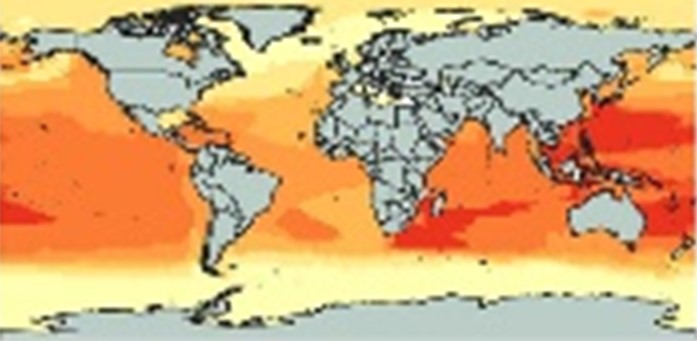
Dr. Ting Lin directs the Multi-HAZard SUStainability (HazSus) Research Group with parallel tracks in earthquake engineering and climate change, enabled by performance-based engineering and advanced technologies such as artificial intelligence, high performance computing, and virtual reality. Her research specifically focuses on probabilistic physics-based seismic hazard/risk analysis interfacing earthquake science/engineering and probabilistic sea-level rise hazard analysis (PSLRHA) incorporating polar ice melting uncertainty. Lin is the Committee Chair of the COSMOS/EERI/SSA Bruce Bolt Medal and the Former Committee Chair of the ASCE SEI Advances in Information Technology. She has served on delegation/working group/committees under COP15, NEHRP, SCEC, NIST, UJNR, & NASEM, and as a lead guest editor/session chair and reviewer for journals, conferences, & funding agencies. Her work has been implemented in hazard mapping, modeling software, and building codes & guidelines.
Wind Hazard and Infrastructure Performance (WHIP) Center
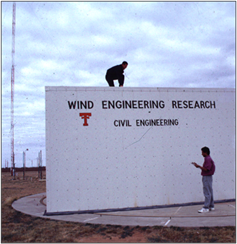
Dr. Kishor Mehta, P.W. Horn Distinguished Professor (ret.) is member of the National Academy of Engineering, and Distinguished Member of ASCE. He was Center Director for the NSF IUCRC Wind Hazard and Infrastructure Performance (WHIP) Center, the position he held for the past five years and has stepped down recently. Over the last fifty-four years his research focus has been on wind hazards and their impact on buildings and structures. His accomplishments include in-situ damage documentation, wind pressures on building in the field, technical criteria for in-residence shelter, and development of national wind load standard ASCE 7, EF-Scale for tornado intensity, and multidisciplinary doctoral curriculum for wind science and engineering.
Investigation of cross-frame stiffness and stability in steel bridges
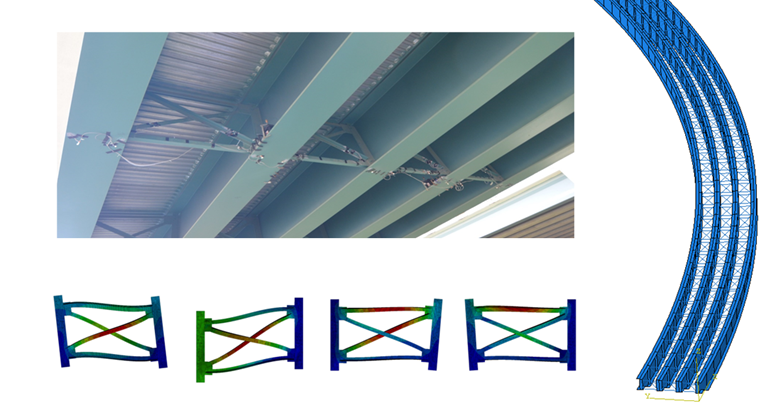
The behavior of cross-frames varies depending on bridge conditions and loading types. Additionally, the approach used to model cross-frames can significantly impact performance predictions for girder stability during construction and for cross-frame fatigue under in-service traffic loading.
Dr. Sunghyun Park's research includes laboratory tests, field experiments, and finite element analysis.
Uncertainty Quantification and Management in Computational Science and Engineering

Dr. Zhiheng Wang serves as a member of the ASCE Engineering Mechanics Institute (EMI) Probabilistic Methods Committee (PMC). His group develops novel methodologies and algorithms for uncertainty quantification and scientific machine learning, with applications to complex systems in science and engineering, such as structures, materials, hazards (wind, earthquake, fire), and aerospace, etc., aiming to enhance the sustainability, resilience, and efficiency of engineering design, decision-making, and optimization processes.
Tornado Effects on Civil Infrastructure and Hazard Mitigation
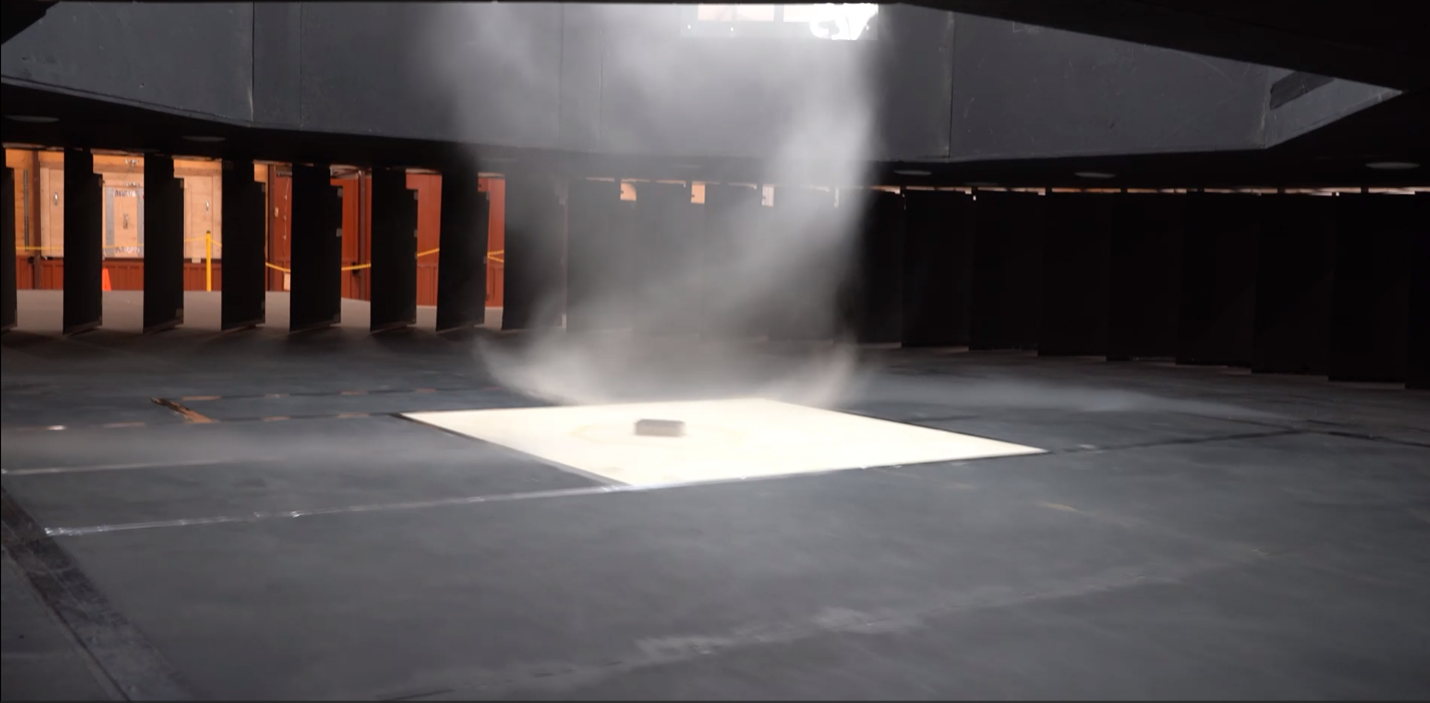
Dr. Delong Zuo has been pursuing research related to tornadoes, their devastating effects on civil infrastructure, and the mitigation of these effects. In recent years, his research has received support from the National Science Foundation (NSF), the NSF-supported Industry-University Cooperative Research Center for Wind Hazard and Infrastructure Performance, and the Central Research Institute of Electric Power Industry of Japan that support this research. Using the funds provided by these entities, a research team led by Dr. Zuo has conducted both laboratory testing and numerical simulations based on computational fluid mechanics to characterize tornado-like vortices and the loading on buildings by these vortices. The outcomes of the characterization have also been used as a basis to probabilistically simulate tornado loading on buildings and investigate the structural response of the buildings to the loading. This enables the evaluation of risks that tornadoes cause to buildings and potential development of strategies and countermeasures for reducing the risks.
Faculty List:

At Texas Tech University, the Geotechnical Engineering Program is dedicated to advancing the understanding and application of granular materials in natural and built environments. We recognize the importance of soils and rocks as engineering materials and focus on addressing the challenges related to their behavior and mitigation of natural and man-made hazards.
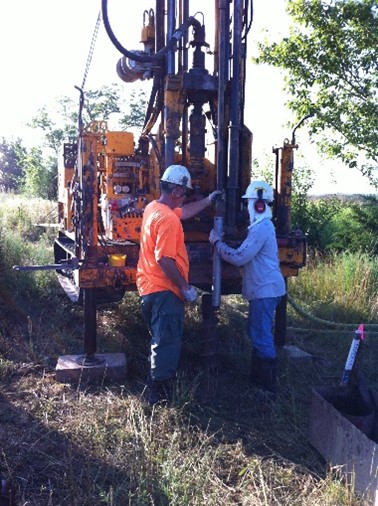
Our faculty and students engage in conducting fundamental and applied research using analytical, numerical, and experimental methods. Research topics include the analysis, design and construction of foundations, slopes, and earth retaining structures, soil-structure interactions, site and material characterization, ground improvement, natural hazard assessment and mitigation, environmental geotechnics, and energy geotechnics. Through our collaborative efforts, we aim to develop innovative and resilient solutions for infrastructure and energy needs in society.
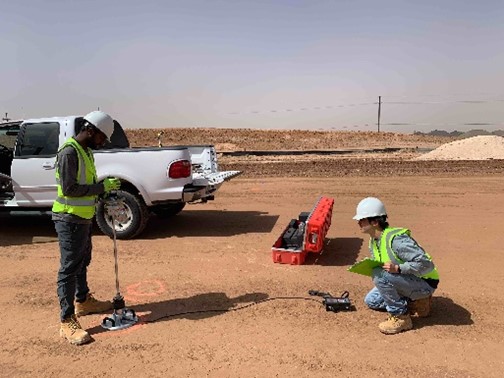
Coming Soon
Transportation:
Grant: Technical Assistance to TxDOT Amarillo, Lubbock, and Fort Worth District
Award: Pyke Johnson Award, Transportation Research Board, for the paper: Chen, Z., H. Xu*, J. Zhao*, and H. Liu (2023). “Curbside Parking monitoring with Roadside LiDAR.” Transportation Research Record. 2677(10), 825-837.
Description:
Dr. Liu's recent research has been primarily focused on using advanced sensing technologies to enhance the efficiency of existing highway systems in terms of reducing congestion and improving safety. A major focus is developing enabling data modeling and analytic tools, particularly, artificial intelligence and machine learning methods for accurate processing of infrastructure-based high-resolution data with enhanced computational efficiency for real-time applications such as red light running protection and pedestrian crossing protection systems.
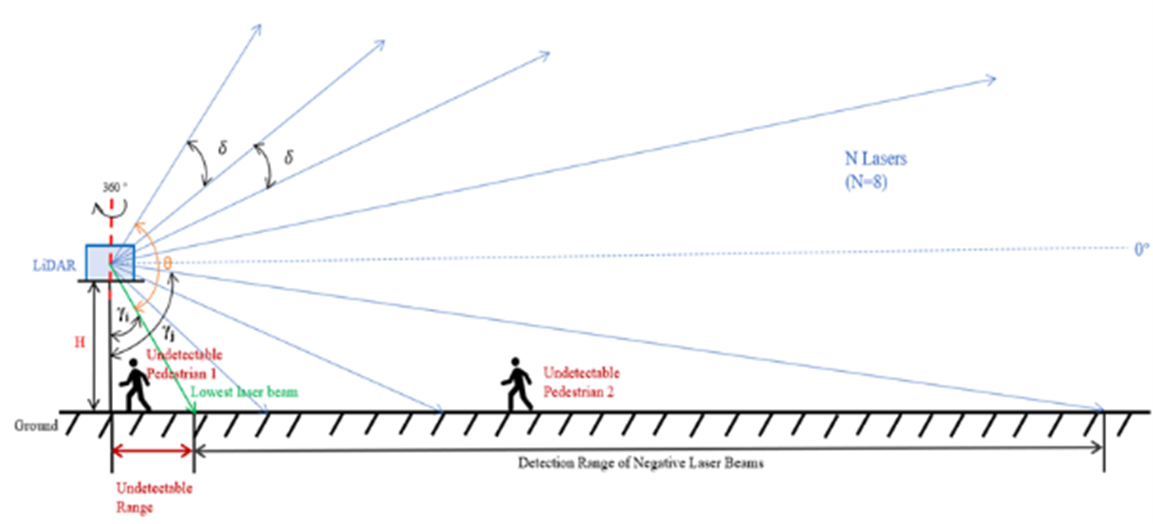
Pedestrian fatalities nearly doubled in the past decade and these fatalities represent about 19% of all traffic deaths in 2022. Traditional historical data-based highway safety studies have long been valuable in understanding past trends and patterns in accidents. However, as we navigate an ever-evolving transportation landscape, there's a growing recognition that solely relying on historical data has limitations in addressing emerging challenges and ensuring robust road safety measures for the future. Hence, the shift towards proactive studies becomes imperative. Proactive studies on highway safety stand as a cornerstone in the ongoing mission to mitigate risks, reduce accidents, and save lives on our roadways. Proactive studies are essential because they provide invaluable insights into the complex dynamics of traffic, human behavior, vehicle technology, and infrastructure, enabling policymakers, engineers, and safety experts to develop targeted strategies for improvement. Dr. Liu's research aims to identify near-crashes/near-misses from high-resolution vehicular and pedestrian trajectories obtained from LiDAR sensors, and use the results to develop predictive hotspot maps and preventive strategies for transportation planning, operation, and management.
Dr. Polaczyk:
Investigation of graphene-modified asphalt efficacy to pavement performance.
The pavement industry is in constant search of new asphalt binder modifiers. Modifying the asphalt binder allows for a wider temperature range, which provides better performance and longer pavement service life. In recent years nanomaterials gained increased attention from the pavement industry. Graphene is a nanomaterial that can be used as an asphalt binder modifier. Graphene has a single layer of carbon atoms organized in a hexagonal pattern, which grants unique properties. This study aims to evaluate the efficacies of graphene-modified asphalt on pavement performance through the laboratory test on asphalt binder and asphalt mixtures prepared with unmodified and graphene-modified binders. It is expected that graphene could effectively increase the rutting resistance of asphalt mixture; however, the cracking resistance is strongly correlated to the quality of the graphene (particle size and purity).
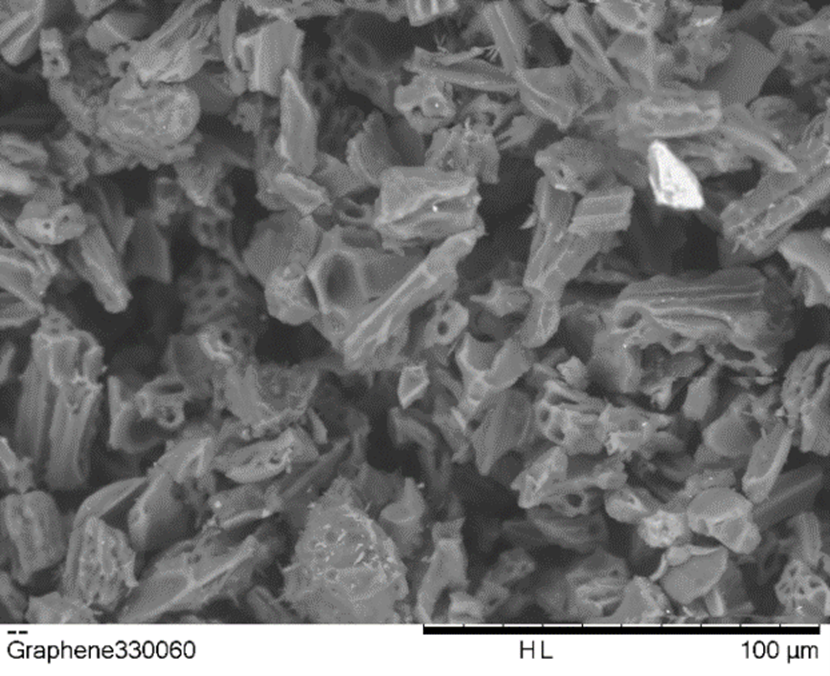
The SEM images of graphene
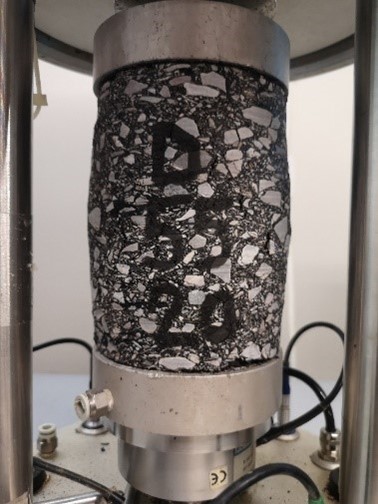
Determination of cracking and rutting resistance.
- MyU : For Students, Faculty, and Staff

Clone of CSE welcomes 25 new faculty in 2023-24
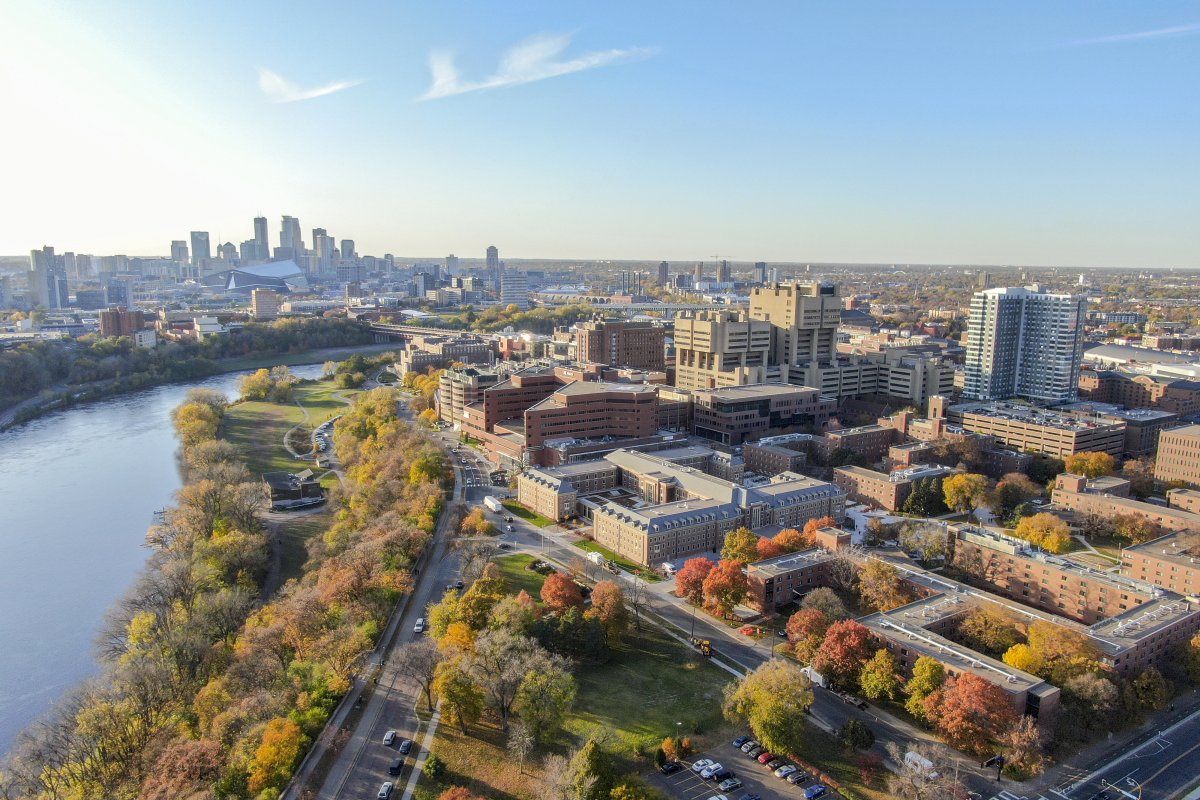
STEM experts from across the world join the University of Minnesota
The University of Minnesota College of Science and Engineering (CSE) welcomes 25 faculty members this 2023-24 academic year—on its way to achieving its goal to hire 60 faculty in three years.
The expertise of this new group of CSE researchers and educators is broad. They range in areas such as hybrid intelligence systems, the reconstruction of past environments and climates, electric machines and magnetic levitation, reinforced concrete structures, and mathematical models to predict the electronic properties of novel materials.
Meet our new science and engineering faculty:
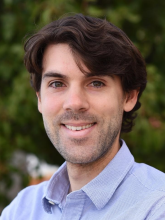
Rene Boiteau is an assistant professor of chemistry. He joins Minnesota from Oregon State University, where he held a joint faculty appointment in the Pacific Northwest National Laboratory. Boiteau earned a bachelor’s in chemistry at Northwestern University, a master’s in earth sciences at University of Cambridge, and a Ph.D. in chemical oceanography at Massachusetts Institute of Technology and Woods Hole Oceanographic Institution. Much of his work is focused on developing analytical chemical approaches, especially mass spectrometry.

Zhu-Tian Chen is an assistant professor of computer science and engineering. He received his bachelor’s in software engineering from South China University of Technology and Ph.D. in computer science from Hong Kong University of Science and Technology. Prior to Minnesota, Chen served as a postdoctoral fellow at Harvard University and postdoctoral researcher at the University of California San Diego. His recent work focuses on enhancing human-data and human-AI interactions in both AR/VR environments—with applications in sports, data journalism, education, biomedical, and architecture.

Gregory “Greg” Handy is an assistant professor of mathematics . He comes to Minnesota from the University of Chicago, where he was a postdoctoral scholar in the Departments of Neurobiology and Statistics. As an applied mathematician and theoretical biologist, Handy’s research strives to use biological applications as inspiration to create new mathematical techniques, and to combine these techniques with classical approaches to examine the mechanisms driving biological processes. This fall, he is teaching Math 2142: Elementary Linear Algebra.
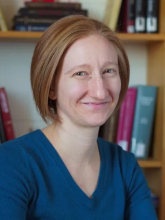
Jessica Hoover is a professor of chemistry. She joins the University of Minnesota from West Virginia University, where she has been a faculty member since 2012. Hoover’s interest in catalysis has been the focus of her work since her undergraduate studies. She graduated with a bachelor’s from Harvey Mudd College before arriving at the University of Washington to pursue her Ph.D. She was a postdoctoral researcher at the University of Wisconsin, Madison.

Harman Kaur is an assistant professor of computer science and engineering—and a University of Minnesota alumna (2016 bachelor’s in computer science). Her research areas are human-centered artificial intelligence, explainability and interpretability, and hybrid intelligence systems. She is affiliated with the GroupLens Research Lab, a group of faculty and students in her department that’s focused on human computing interaction. Prior to Minnesota, Kaur served as a graduate researcher in the interactive Systems Lab and comp.social Lab at the University of Michigan, where she received both her master’s and Ph.D.
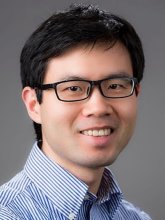
Yulong Lu is an assistant professor of mathematics. He joins the faculty from University of Massachusetts, Amherst. Lu received his Ph.D. in mathematics and statistics at the University of Warwick. His research lies at the intersection of applied and computational mathematics, statistics, and data sciences. His recent work is focused on the mathematical aspects of deep learning. This fall, Lu is teaching Math 2573H: Honors Calculus III to undergraduates and Math 8600: Topics in Applied Mathematics, Theory of Deep Learning to graduate students.
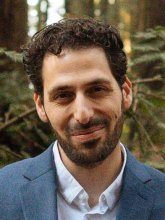
Ben Margalit is an assistant professor of physics and astronomy. As a theoretical astrophysicist, he studies the fundamental physics of star explosions, collisions and other examples of intergalactic violence such as a black hole passing near a galaxy and “shredding it to spaghetti.” As part of his job, Margalit works closely with observational astronomers in selecting the kinds of places to look for transient events. He holds bachelor’s and master’s degrees from the Hebrew University of Jerusalem, and a Ph.D. from Columbia University.

Maru Sarazola is an assistant professor of mathematics. She joins Minnesota from Johns Hopkins University, where she was a J.J. Sylvester Assistant Professor. Sarazola received her Ph.D. from Cornell University. Her research is focused on algebraic topology—specifically, her interest lies in homotopy theory (a field that studies and classifies objects up to different notions of "sameness") and category theory (“the math of math,” which looks to abstract all structures to study their behavior). This fall, she is teaching Math 5285H: Honors Algebra I.
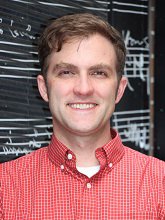
Eric Severson is an associate professor of mechanical engineering—and University of Minnesota alumnus (2008 bachelor’s and 2015 Ph.D. in electrical engineering). He returns to his alma mater after being on the University of Wisconsin-Madison faculty for six years. Severson leads research in electric machines and magnetic levitation, with a renewed focus in addressing grand challenges in energy and sustainability through multidisciplinary collaborations. His interests include extreme efficiency, bearingless machines, flywheel energy storage, and electric power grid technology.
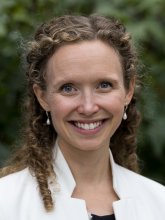
Kelsey Stoerzinger is an associate professor of chemical engineering and materials science. She was on the faculty at Oregon State University, with a joint appointment in the Pacific Northwest National Laboratory. She studies the electrochemical transformation of molecules into fuels, chemical feedstocks, and recovered resources. Her research lab designs materials and processes for the storage of renewable electricity. Stoerzinger holds a bachelor’s from Northwestern University, master’s from University of Cambridge, and Ph.D. from MIT.

Lynn Walker is a professor—and the L.E. Scriven Chair in the Department of Chemical Engineering and Materials Science. Previously, she was on the faculty at Carnegie Mellon University. Her research focuses on developing the tools and fundamental understanding necessary to efficiently process soft materials and complex fluids. This expertise is being used to develop systematic approaches to incorporate sustainable feedstocks in consumer products. Walker holds a bachelor’s from the University of New Hampshire and Ph.D. from the University of Delaware. She was a postdoctoral researcher at Katholieke Universiteit Leuven in Belgium.
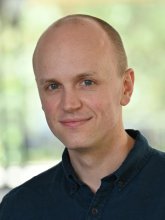
Alexander “Alex” Watson is an assistant professor of mathematics—and former University of Minnesota postdoctoral researcher in the School of Mathematics. Watson earned his Ph.D. at Columbia University. He works on mathematical models used to predict the electronic properties of materials, especially novel 2D materials such as graphene and twisted multilayer “moiré materials.” In summer 2022 and 2023, he presented at the U’s MathCEP Talented Youth Mathematics Program on topics related to materials research at the University of Minnesota.

Anna Weigandt is an assistant professor of mathematics. She comes to Minnesota from the Massachusetts Institute of Technology, where she was an instructor. Weigandt completed her Ph.D. at the University of Illinois, and she was a postdoctoral assistant professor in the Center for Inquiry Based Learning at University of Michigan. She works in algebraic combinatorics, specifically Schubert calculus. This fall 2023, she is teaching Math 5705: Enumerative Combinatorics.
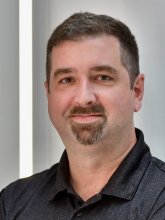
Michael Wilking is a professor of physics—and University of Minnesota alumnus (2001 bachelor’s in chemical engineering). He holds a master’s and Ph.D. from the University of Colorado. Prior to his return to the Twin Cities campus, Wilking served on the faculty at Stony Brook University. He completed his post-doc at TRIUMF, Canada's national particle accelerator center. Wilking was part of the Stony Brook research team honored with the 2016 Breakthrough Prize in Fundamental Physics.

Benjamin "Ben" Worsfold is an assistant professor of civil engineering —and a licensed professional engineer in both California and Costa Rica. His research interest lies in large-scale structural testing, finite element analysis of reinforced concrete structures, and anchoring to concrete. Worsfold earned his master’s and Ph.D. from the University of California, Berkeley, and bachelor’s from the University of Costa Rica.

Yogatheesan Varatharajah is an assistant professor of computer science and engineering —and a visiting scientist in neurology at the Mayo Clinic. His research lies broadly in machine learning for health. Varatharajah earned his master’s and Ph.D. from the University of Illinois Urbana-Champaign. Prior to Minnesota, he was a research assistant professor of bioengineering at the University of Illinois and faculty affiliate for the Center for Artificial Intelligence Innovation with the National Center for Supercomputing Applications.
Starting in January 2024:

Emily Beverly is an incoming assistant professor of earth sciences. Prior to joining the University of Minnesota, she was on the faculty at University of Houston. She earned a bachelor’s from Trinity University, a master’s from Rutgers University, and a Ph.D. from Baylor University. Beverly was a postdoctoral researcher at Georgia State University and University of Michigan. Her research focuses on understanding environmental drivers of human and hominin evolution. Beverly uses stable isotopes and geochemistry to answer questions about past and future climates with a firm foundation in sedimentary geology and earth surface processes.

Alexander “Alex” Grenning is an assistant professor of chemistry. He comes to Minnesota from the University of Florida, where he was a tenured faculty. Grenning earned a bachelor’s in chemistry and music from Lake Forest College, and a Ph.D. in organic chemistry from the University of Kansas. He was a postdoctoral researcher at Boston University. His work is focused on chemical synthesis and drug discovery.

Yu Cao is an incoming professor of electrical and computer engineering. Prior to Minnesota, Cao was a professor at Arizona State University. He holds a bachelor’s in physics from Peking University and a master’s in biophysics plus a Ph.D. in electrical engineering and computer sciences from the University of California-Berkeley. His research includes neural-inspired computing, hardware design for on-chip learning, and reliable integration of nanoelectronics. Cao served as associate editor of the Institute of Electrical and Electronics Engineers’s monthly Transactions on CAD .
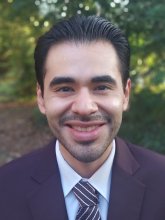
Edgar Peña is an incoming assistant professor of biomedical engineering—and a University of Minnesota alumnus (2017 Ph.D. in biomedical engineering). He is a neuromodulation scholar who is interested in vagus nerve stimulation. Peña earned his bachelor’s degrees in electrical engineering and biomedical engineering from the University of California, Irvine. During his doctoral studies at the University of Minnesota Twin Cities, he used computational models to optimize deep brain stimulation.

Seongjin Choi is an incoming assistant professor of civil engineering. He received his bachelor’s, master’s, and Ph.D. from the Korea Advanced Institute of Science and Technology. He was a postdoctoral researcher at McGill University. His work involves using data analytics to draw valuable insights from urban mobility data and applying cutting-edge AI technologies in the field of transportation.
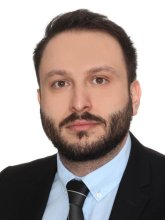
Pedram Mortazavi is an incoming assistant professor of civil engineering— and a licensed structural engineer in Canada . His interests lie in structural resilience, steel structures, large-scale testing, development of damping and isolation systems, advanced simulation methods, and hybrid simulation. Mortazavi holds a bachelor’s from the University of Science and Culture in Iran, a master’s from Carleton University in Ottawa, and Ph.D. from the University of Toronto.

Gang Qiu is an incoming assistant professor of electrical and computer engineering. He received his bachelor’s degree from Peking University in microelectronics and his Ph.D. in electrical and computer engineering from Purdue University. (He is currently a postdoctoral researcher at the University of California, Los Angeles.) Qiu’s research focuses on novel low-dimensional materials for advanced electronics and quantum applications. His current interest includes employing topological materials for topological quantum computing.

Qianwen Wang is an incoming assistant professor of computer science and engineering. She received her bachelor’s from Xi’an Jiao Tong University and her Ph.D. from Hong Kong University of Science and Technology. Prior to Minnesota, Wang served as a post-doctoral researcher at Harvard University in the Department of Biomedical Informatics. As a visualization researcher, she created interactive visualization tools that enable humans to better interpret AI and generate insights from their data.

Katie (Yang) Zhao is an incoming assistant professor of electrical and computer engineering. Her research interest resides in the intersection between Domain-Specific Acceleration Chip and Computer Architecture. In particular, her work centers around enabling AI-powered intelligent functionalities on resource-constrained edge devices. Zhao received her bachelor’s and master’s from Fudan University, China, and Ph.D. from Rice University. (She is currently a postdoctoral researcher at Georgia Institute of Technology.)
Learn more about our goal to hire 60 new faculty in three years at the CSE recruiting website .
If you’d like to support faculty research in the University of Minnesota College of Science and Engineering, visit our CSE Giving website .
Join our winning team
Our unique combination of science and engineering within one college in a vibrant, metropolitan area means more opportunities for you. Learn about faculty openings.
Read more stories:
Find more news and feature stories on the CSE news page .
- Future undergraduate students
- Future transfer students
- Future graduate students
- Future international students
- Diversity and Inclusion Opportunities
- Learn abroad
- Living Learning Communities
- Mentor programs
- Programs for women
- Student groups
- Visit, Apply & Next Steps
- Information for current students
- Departments and majors overview
- Departments
- Undergraduate majors
- Graduate programs
- Integrated Degree Programs
- Additional degree-granting programs
- Online learning
- Academic Advising overview
- Academic Advising FAQ
- Academic Advising Blog
- Appointments and drop-ins
- Academic support
- Commencement
- Four-year plans
- Honors advising
- Policies, procedures, and forms
- Career Services overview
- Resumes and cover letters
- Jobs and internships
- Interviews and job offers
- CSE Career Fair
- Major and career exploration
- Graduate school
- Collegiate Life overview
- Scholarships
- Diversity & Inclusivity Alliance
- Anderson Student Innovation Labs
- Information for alumni
- Get engaged with CSE
- Upcoming events
- CSE Alumni Society Board
- Alumni volunteer interest form
- Golden Medallion Society Reunion
- 50-Year Reunion
- Alumni honors and awards
- Outstanding Achievement
- Alumni Service
- Distinguished Leadership
- Honorary Doctorate Degrees
- Nobel Laureates
- Alumni resources
- Alumni career resources
- Alumni news outlets
- CSE branded clothing
- International alumni resources
- Inventing Tomorrow magazine
- Update your info
- CSE giving overview
- Why give to CSE?
- College priorities
- Give online now
- External relations
- Giving priorities
- CSE Dean's Club
- Donor stories
- Impact of giving
- Ways to give to CSE
- Matching gifts
- CSE directories
- Invest in your company and the future
- Recruit our students
- Connect with researchers
- K-12 initiatives
- Diversity initiatives
- Research news
- Give to CSE
- CSE priorities
- Corporate relations
- Information for faculty and staff
- Administrative offices overview
- Office of the Dean
- Academic affairs
- Finance and Operations
- Communications
- Human resources
- Undergraduate programs and student services
- CSE Committees
- CSE policies overview
- Academic policies
- Faculty hiring and tenure policies
- Finance policies and information
- Graduate education policies
- Human resources policies
- Research policies
- Research overview
- Research centers and facilities
- Research proposal submission process
- Research safety
- Award-winning CSE faculty
- National academies
- University awards
- Honorary professorships
- Collegiate awards
- Other CSE honors and awards
- Staff awards
- Performance Management Process
- Work. With Flexibility in CSE
- K-12 outreach overview
- Summer camps
- Outreach events
- Enrichment programs
- Field trips and tours
- CSE K-12 Virtual Classroom Resources
- Educator development
- Sponsor an event
- About company
- GENERAL CONTRACTOR

+7 (495) 526-30-40 +7 (49657) 0-30-99
THE HISTORY OF THE COMPANY CREATION
1993 how the construction company remstroy was created the year 1993 was a period when a lot of construction companies, which had been working successfully during the soviet times and had rich staff capacity, were forced to cease their activity for various reasons. a lot of capable specialists either had to look for another job or change their field. but there were also those who were willing to realise their potential in the field of construction in accordance with the received degree and the experience they had accumulated. thus, in 1993 in elektrostal (moscow oblast) a group of specialists and people sharing each other’s ideas, who had enormous educational background and the highest degree in architecture, organized and registered ooo firm erg which began its rapid development and successful work, offering its service both on the construction market and other areas. 2000 industrial construction is the main area seven years of successful work have shown that combining different types of activities in the same company is not always convenient. and in the year 2000 the founders of ooo firm erg decided to create and register a monoprofile construction company ooo remstroy construction company. industrial construction was chosen as the priority area. it was in this area that the directors of ooo sk remstroy began their working life and grew as specialists. in order to achieve the set goal, they selected a mobile team of professionals in the field of industrial construction, which allows us to cope with the tasks assigned to ooo sk remstroy throughout russia and the near abroad. 2010 manufacturing of metal structures we possess modern equipment that allows us to carry out the entire cycle of works on the manufacture of metal structures of any complexity without assistance. designing – production – installation of metal structures. a staff of professionals and well-coordinated interaction of the departments let us carry out the work as soon as possible and in accordance with all customer’s requirements.” extract from the list of members of self-regulatory organizations, construction.
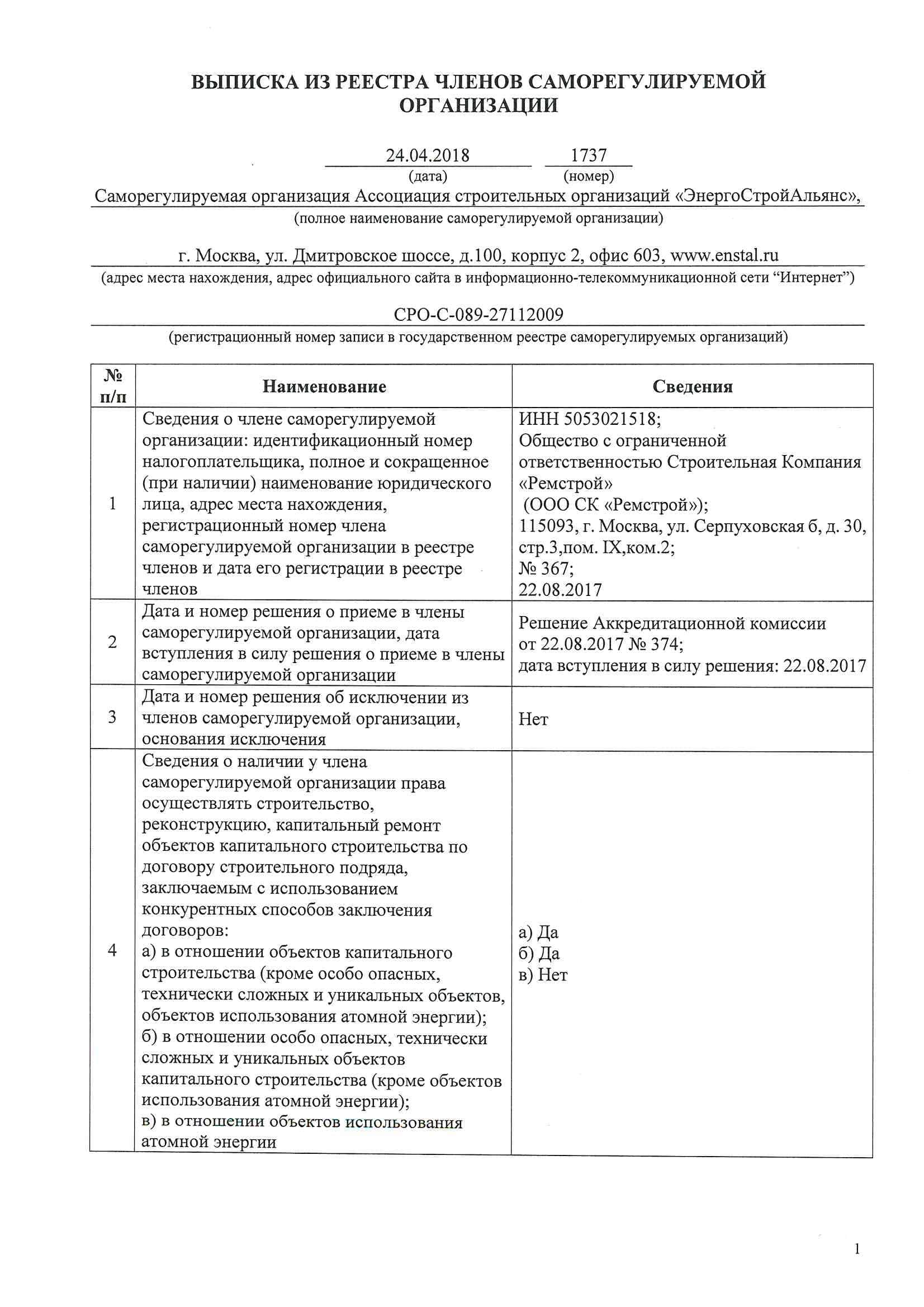
LICENSE OF MINISTRY OF EMERGENCY SITUATIONS
Certificates, system of managing quality.
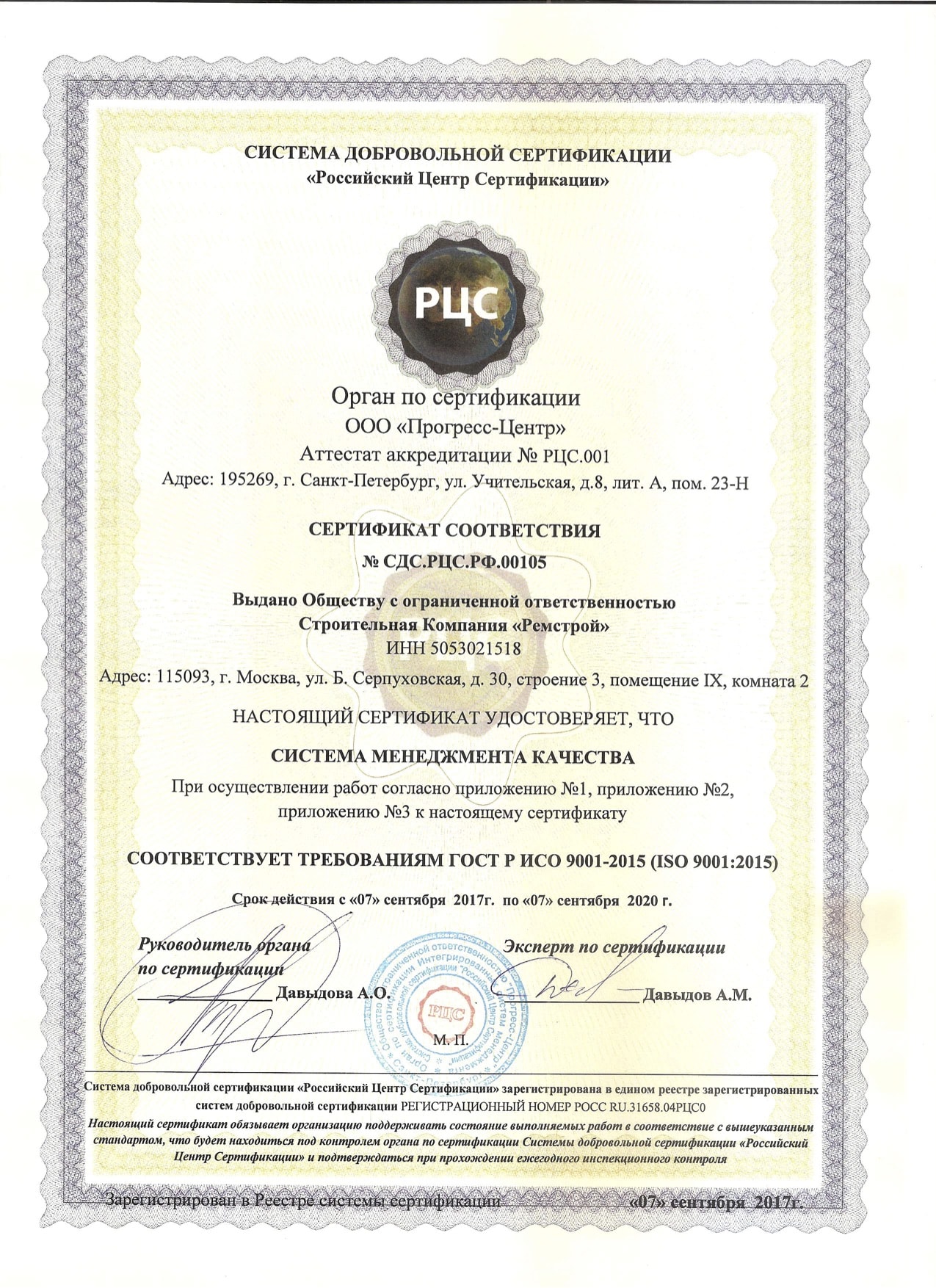
SYSTEM OF ECOLOGIAL MANAGEMENT
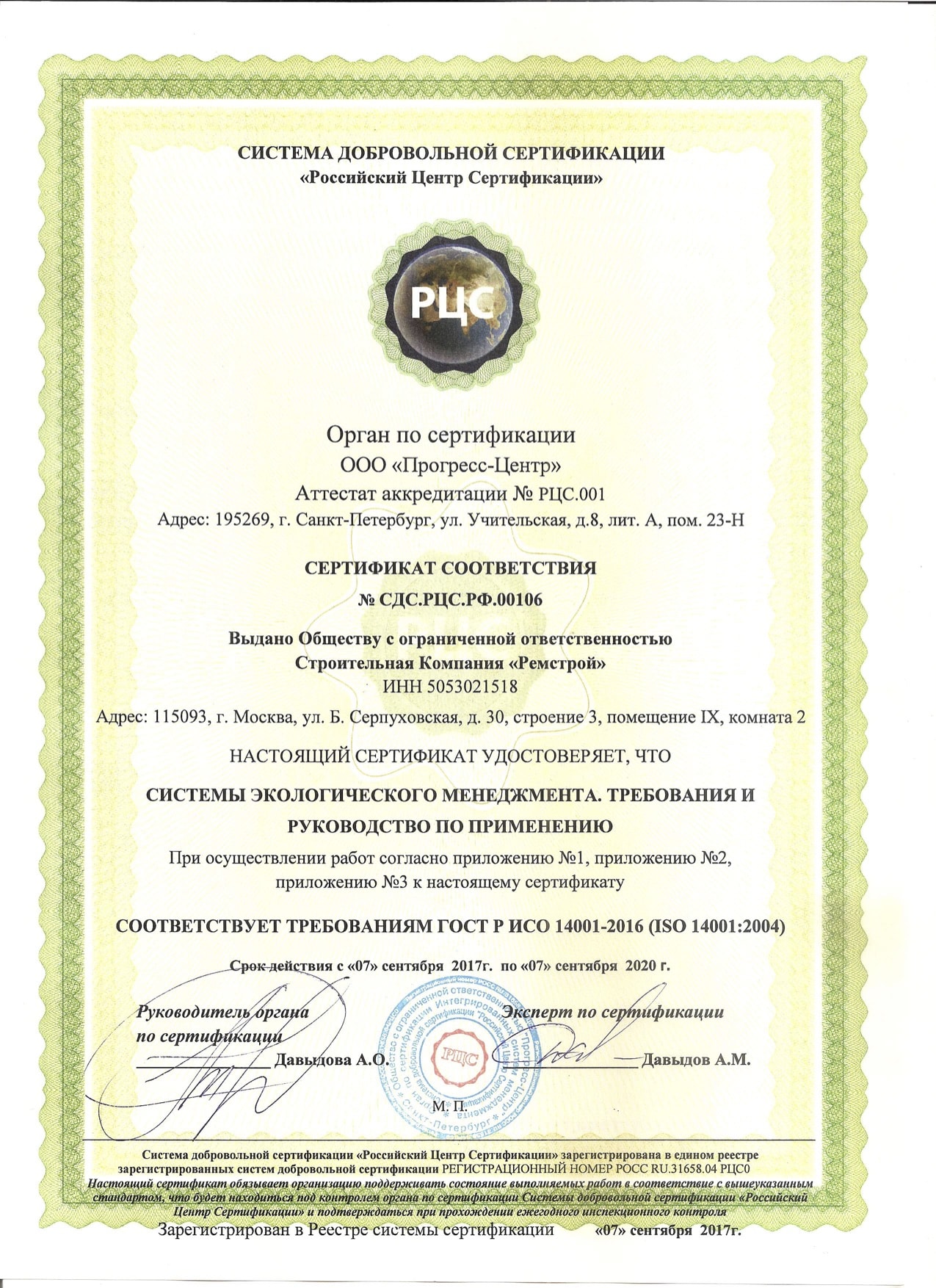
SYSTEM OF OCCUPATIONAL SAFETY AND HEALTH MANAGEMENT
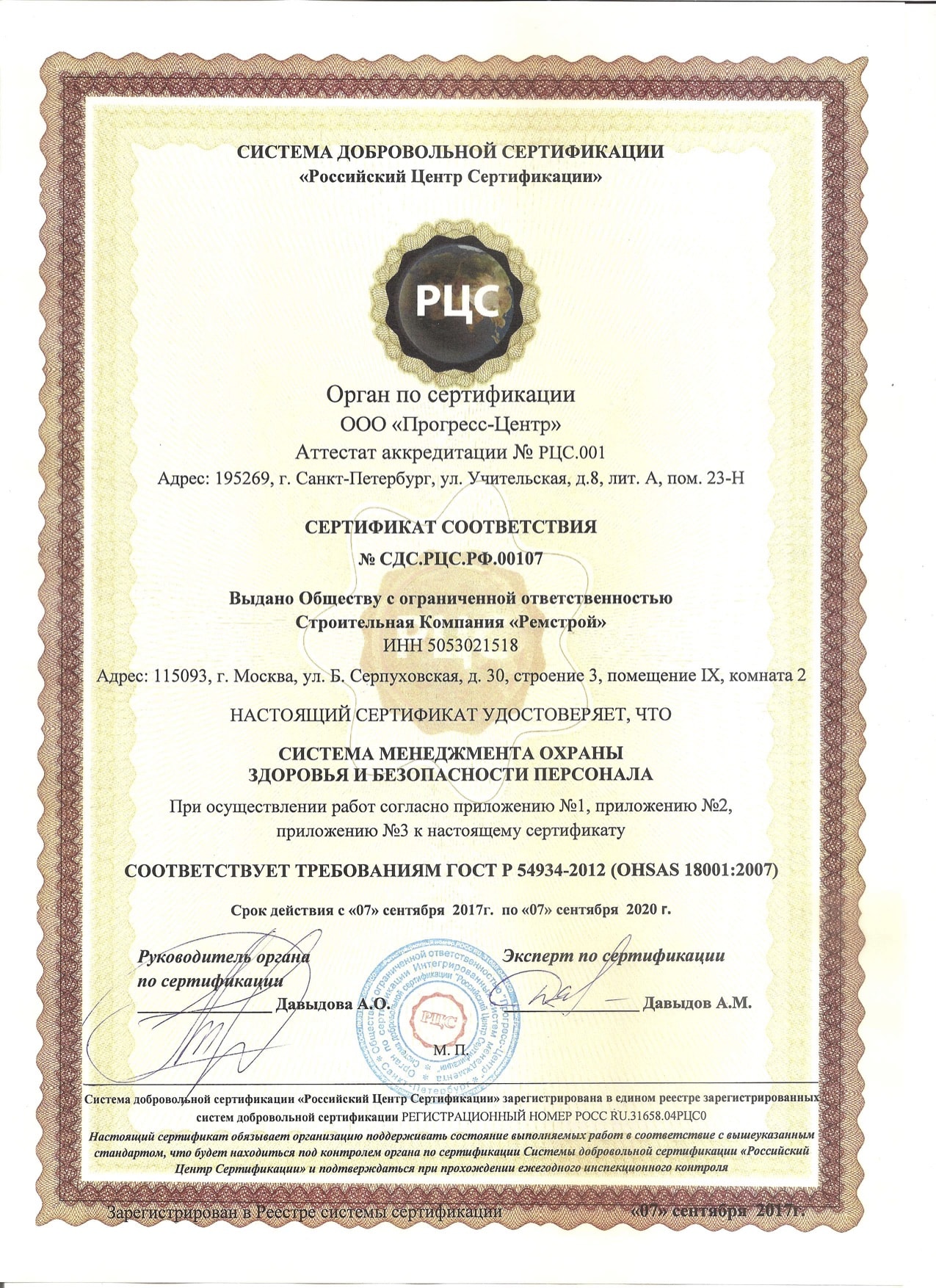
LETTERS OF RECOMMENDATION
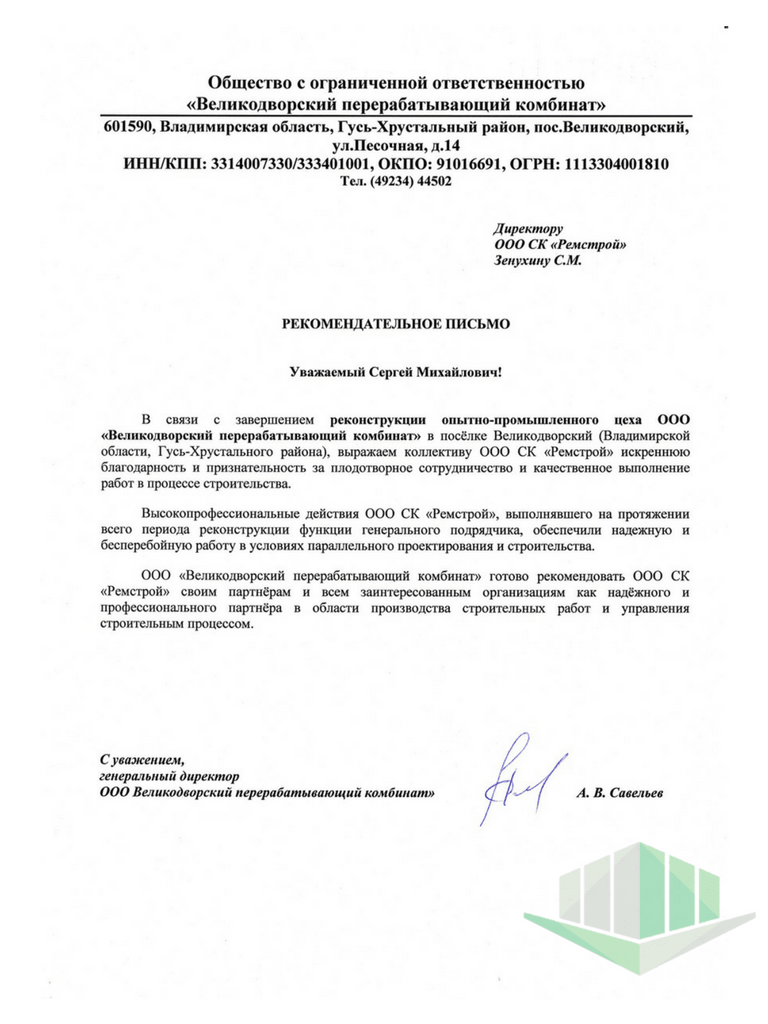
THE GEOGRAPHY OF CONSTRUCTION SITES
YOU CAN FIND MORE INFORMATION ON THE CONSTRUCTION SITES OF OOO REMSTROY ON THE PAGE OF THE SITE
OUR CLIENTS

http://remstroi.pro/yandex-promyshlennoe-stroitelstvo

Geographic coordinates of Elektrostal, Moscow Oblast, Russia
City coordinates
Coordinates of Elektrostal in decimal degrees
Coordinates of elektrostal in degrees and decimal minutes, utm coordinates of elektrostal, geographic coordinate systems.
WGS 84 coordinate reference system is the latest revision of the World Geodetic System, which is used in mapping and navigation, including GPS satellite navigation system (the Global Positioning System).
Geographic coordinates (latitude and longitude) define a position on the Earth’s surface. Coordinates are angular units. The canonical form of latitude and longitude representation uses degrees (°), minutes (′), and seconds (″). GPS systems widely use coordinates in degrees and decimal minutes, or in decimal degrees.
Latitude varies from −90° to 90°. The latitude of the Equator is 0°; the latitude of the South Pole is −90°; the latitude of the North Pole is 90°. Positive latitude values correspond to the geographic locations north of the Equator (abbrev. N). Negative latitude values correspond to the geographic locations south of the Equator (abbrev. S).
Longitude is counted from the prime meridian ( IERS Reference Meridian for WGS 84) and varies from −180° to 180°. Positive longitude values correspond to the geographic locations east of the prime meridian (abbrev. E). Negative longitude values correspond to the geographic locations west of the prime meridian (abbrev. W).
UTM or Universal Transverse Mercator coordinate system divides the Earth’s surface into 60 longitudinal zones. The coordinates of a location within each zone are defined as a planar coordinate pair related to the intersection of the equator and the zone’s central meridian, and measured in meters.
Elevation above sea level is a measure of a geographic location’s height. We are using the global digital elevation model GTOPO30 .
Elektrostal , Moscow Oblast, Russia

IMAGES
VIDEO
COMMENTS
COVID-19 Civil Engineering Research Topics. Topic 1: Civil engineering after Coronavirus: Identify the consequences of Covid-19 on civil engineering in the UK or any country of your choice. Topic 2: Research to study the damage caused to the construction projects due to the lack of workers on site. Topic 3: Contractors and Builders after COVID ...
The School of Engineering's Ph.D. in Civil Engineering program produces graduates dedicated to enriching the field. Research-oriented and focused on the latest developments in the discipline, our program readies you for civil engineering research careers in the private sector. It also prepares you to teach at the university level, ensuring the ...
Addition of different admixtures based on waster material addition in the subgrade material. Analysis and design of pavements in large industries for heavy vehicles. With the academic support of PhD Assistance learn about cutting-edge civil engineering PhD research topics for 2020.
The Department of Civil and Environmental Engineering (CEE) at Berkeley is a place of intellectual vitality. This vitality is evident in its creative and forward-looking curricula and classroom teaching, its attentive academic mentoring, and the innovative research conducted by students and faculty. CEE focuses on developing future leaders for ...
PhD in Civil Engineering. ... Does it sound like civil engineering topics? Most people usually think that civil engineering is all about soils, rocks, construction, earthquakes, and water. Right, but not 'all.' Surprisingly, due to many efforts for interdisciplinary research, the intersection area between research fields has been emerging ...
The Ph.D. degree in Civil Engineering is a mentored opportunity to become an expert on a specific research topic. This degree is recommended for those who expect to engage in a professional career in research, teaching, or technical work of an advanced nature in civil or environmental engineering.The Ph.D. degree program in CEE is offered in five areas of specialization:
The Ph.D. in Civil and Environmental Engineering aims to build the next generation of scholars and researchers exploring solutions to some of today's most pressing civil and environmental engineering issues, such as clean water access, traffic congestion, improving the crash-worthiness of cars and the design of highway bridges.
Mode of Study. Our PhD program in Civil and Systems Engineering aims to inspire the leaders of tomorrow to take on the challenge of creating and sustaining the built environment that underpins our society. Focal research areas in the department include structural engineering, structural mechanics, probabilistic methods, hazards management, and ...
The PhD in Civil Engineering is research-oriented and intended for those whose goal is a career in civil engineering research and/or teaching at the university level or in private research organizations. ... Both written and oral portions focus on fundamental and advanced civil engineering topics relevant to the student's specific program of ...
Overview. Requirements. The Ph.D. program in the School of Civil and Environmental Engineering is offered to students with an excellent academic background and a capacity for independent research. Major Areas of Specialization are: Construction and Infrastructure Systems Engineering. Environmental Engineering. Geosystems Engineering.
Examples of popular civil engineering topics include: Structural Engineering - A PhD in structural engineering could look at how we can manage the impact of earthquakes on skyscrapers in areas of seismic activity to contribute to the development of resilient structures. Alternatively, this could be a local investigation into a single RC beam ...
The PhD program has two components: (1) An academic program of graduate-level courses that provides depth in a specific area of civil and environmental engineering (the major field) as well as other course work that provides additional exposure at an advanced level to one or more disciplines; and (2) the dissertation, an extended independent ...
Online Civil Engineering Ph.D. candidates are expected to perform cutting edge research. You must be selected by a research faculty member to join their research group or act as advisor. You will be required to complete research work in person. The research facility could be at your own location depending on the project and thesis topic.
Civil engineering is the design and fabrication of structures for improving the way we live and work and for enabling rapid, safe and high-volume transportation. Examples include building roads ...
Program Description. The Doctor of Philosophy (Ph.D.) in Civil Engineering offered by the Department of Civil Engineering in the Faculty of Engineering is a research-intensive program that emphasizes enriching and forward-thinking learning opportunities. The program's objective is to equip students with skills in intellectual curiosity ...
Black Lives Matter in Engineering, Too! An Environmental Justice Approach towards Equitable Decision-Making for Stormwater Management in African American Communities, Maya Elizabeth Carrasquillo. PDF. Coral Reef Restoration in the Tropical West Atlantic Amid the COVID-19 Pandemic, Linden Cheek. PDF
The Ph.D. in civil engineering will provide doctoral-level education for students seeking civil engineering careers in practice, research and teaching/academia. The William States Lee College of Engineering's Civil and Environmental Engineering Department will administer the program, which will be housed in the Energy Production and Infrastructure Center building, a $76-million state-of-the ...
Dissertations from 2021 PDF. DENSITY STATE AND SHEAR BEHAVIOR OF GRANULAR SOILS WITH INFLUENCE OF PARTICLE SIZE DISTRIBUTION, Yibing Deng, Civil and Environmental Engineering. PDF. Harnessing the Mechanics of Thin-Walled Metallic Structures: from Plate-Lattice Materials to Cold-Formed Steel Shear Walls, Fani Derveni, Civil and Environmental Engineering
Civil Engineering Dissertation Topics. The main emphasis of civil engineering in recent times is focused on sustainable development of quality, durable structures that deliver value for money, maximise the benefits from innovation and meets the specifications of the end users. Construction of sustainable houses has been a top priority within ...
Civil engineering faculty are engaged in cutting edge research spanning a broad spectrum of activities that impact structures and infrastructure, addressing pressing global challenges. ... Research topics include the analysis, design and construction of foundations, slopes, and earth retaining structures, soil-structure interactions, site and ...
STEM experts from across the world join the University of Minnesota The University of Minnesota College of Science and Engineering (CSE) welcomes 25 faculty members this 2023-24 academic year—on its way to achieving its goal to hire 60 faculty in three years.The expertise of this new group of CSE researchers and educators is broad. They range in areas such as hybrid intelligence systems, the ...
Elektrostal is a city in Moscow Oblast, Russia, located 58 kilometers east of Moscow. Elektrostal has about 158,000 residents. Mapcarta, the open map.
2000. Seven years of successful work have shown that combining different types of activities in the same company is not always convenient. And in the year 2000 the founders of OOO Firm ERG decided to create and register a monoprofile construction company OOO Remstroy Construction Company. Industrial construction was chosen as the priority area.
Geographic coordinates of Elektrostal, Moscow Oblast, Russia in WGS 84 coordinate system which is a standard in cartography, geodesy, and navigation, including Global Positioning System (GPS). Latitude of Elektrostal, longitude of Elektrostal, elevation above sea level of Elektrostal.
For artists, writers, gamemasters, musicians, programmers, philosophers and scientists alike! The creation of new worlds and new universes has long been a key element of speculative fiction, from the fantasy works of Tolkien and Le Guin, to the science-fiction universes of Delany and Asimov, to the tabletop realm of Gygax and Barker, and beyond.